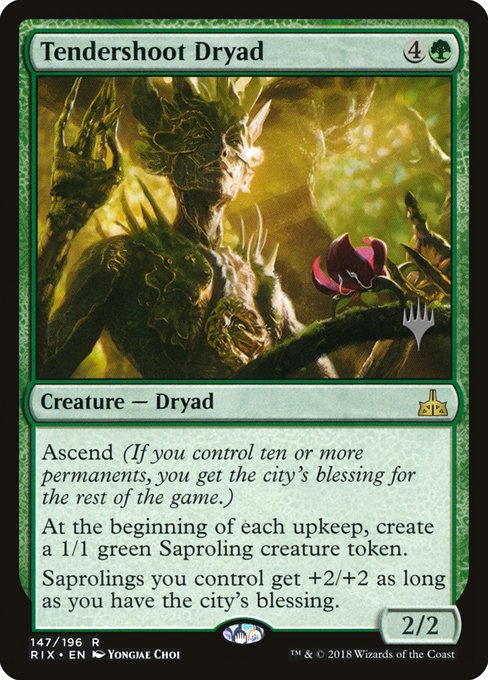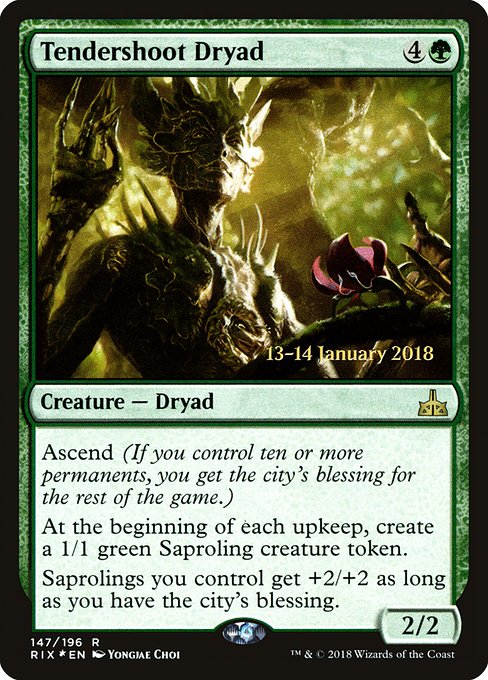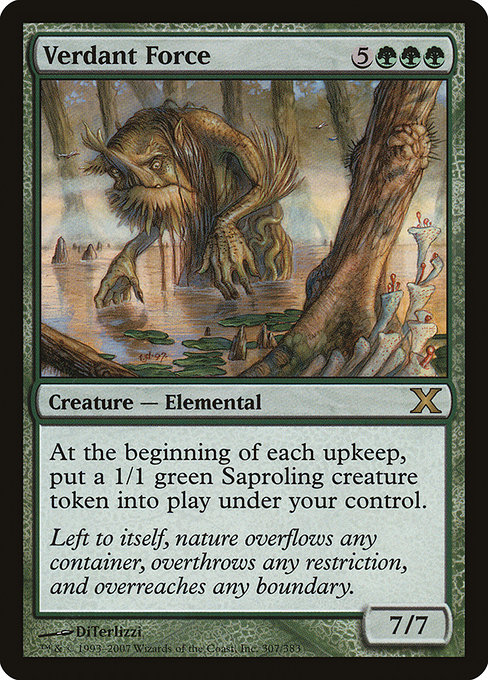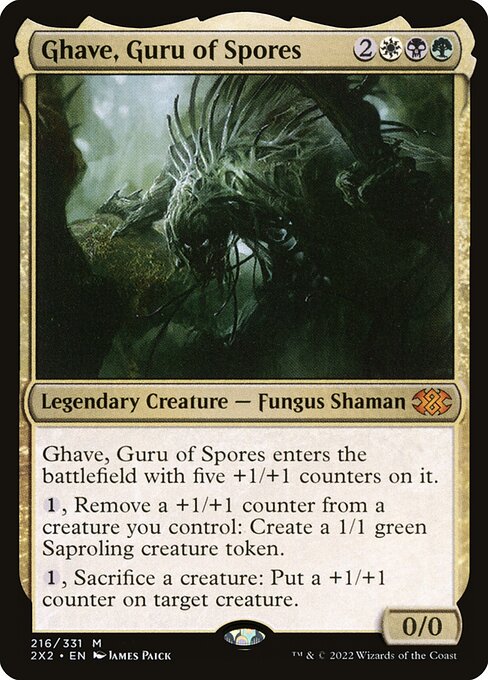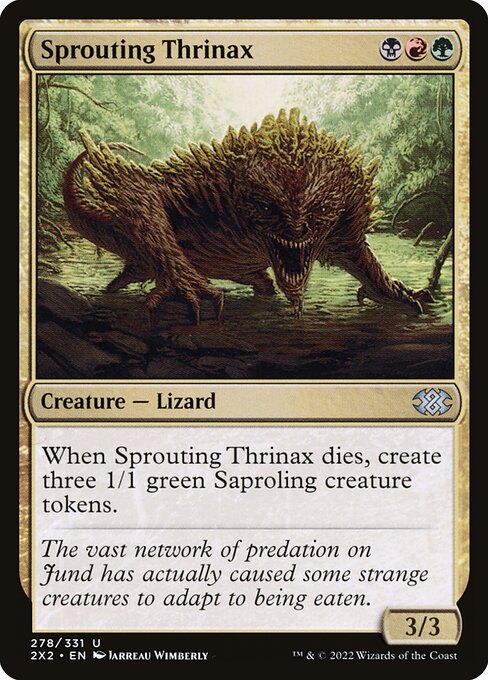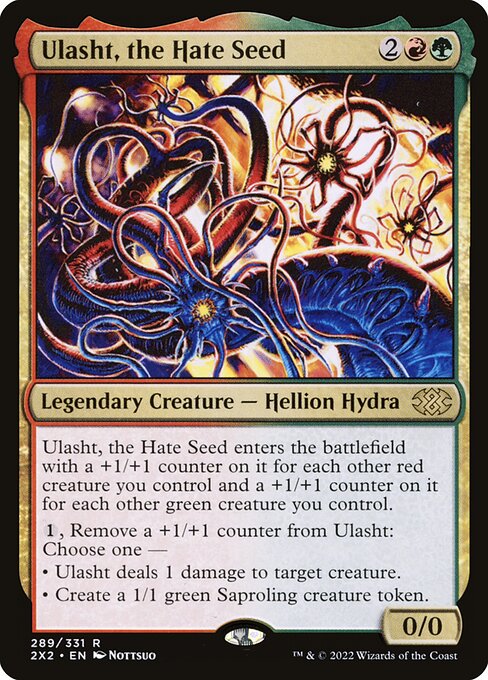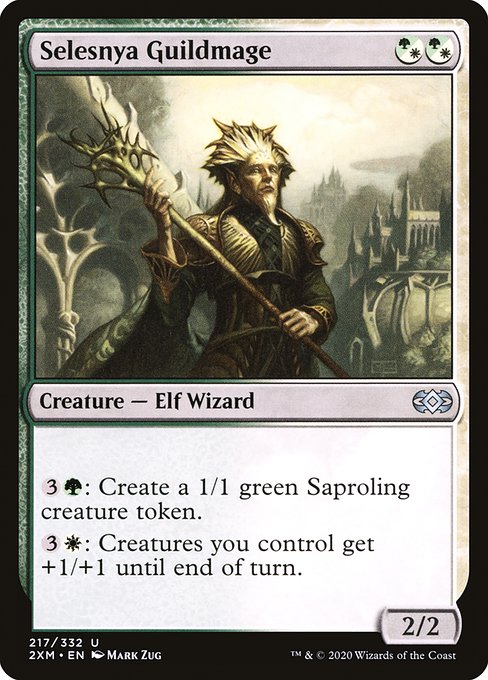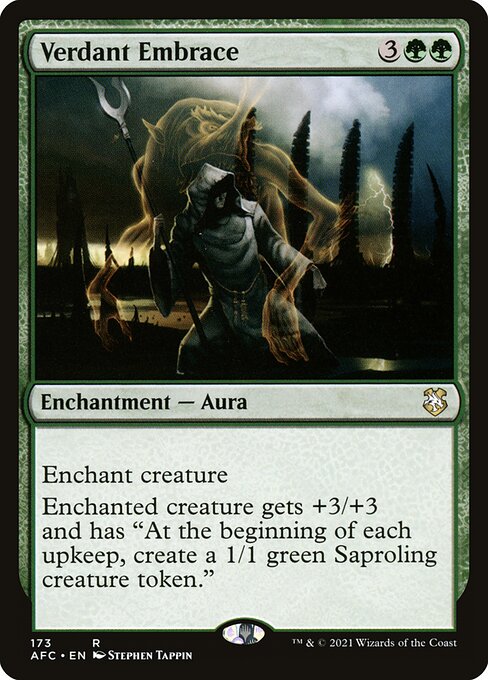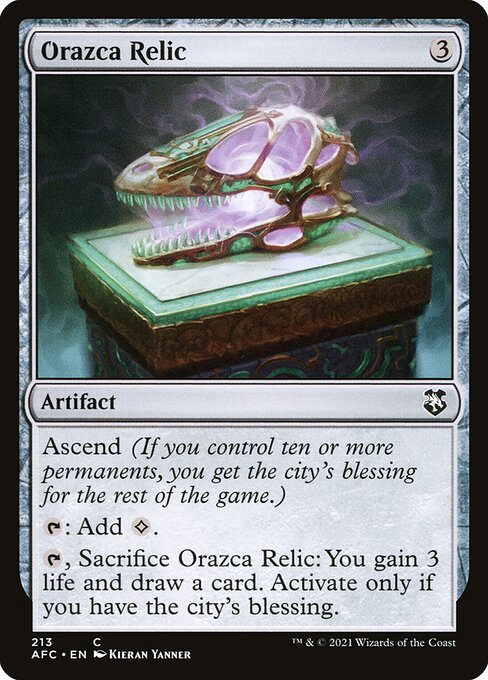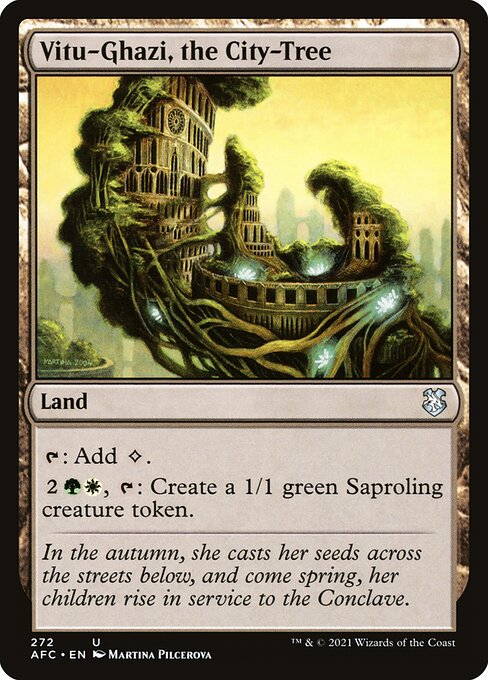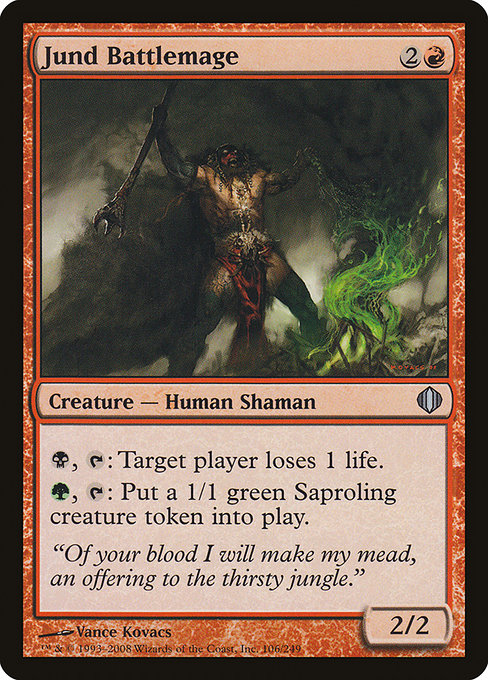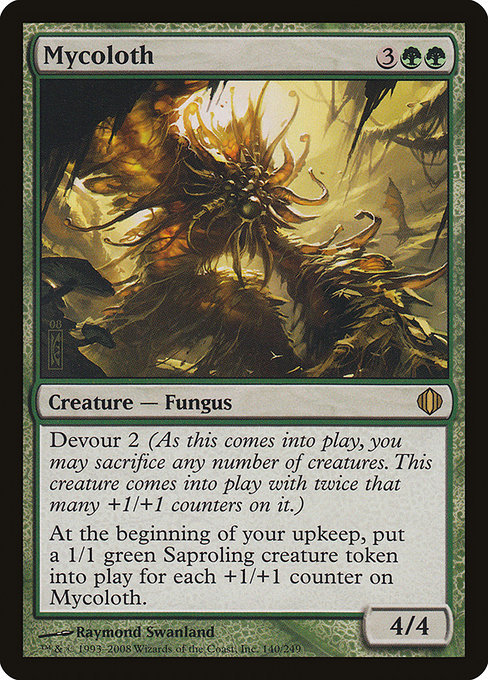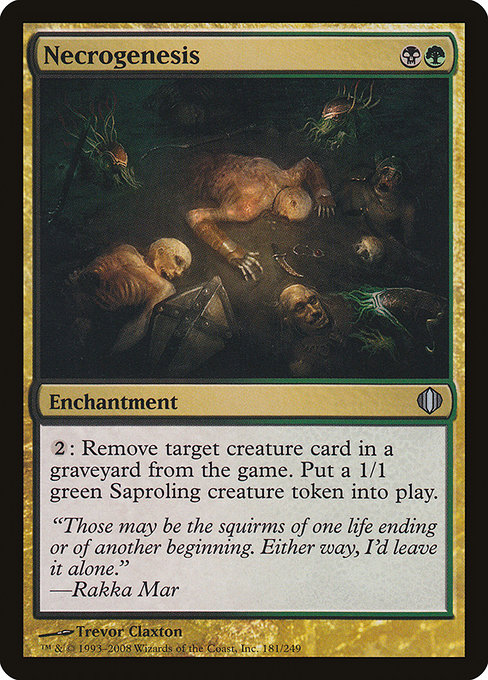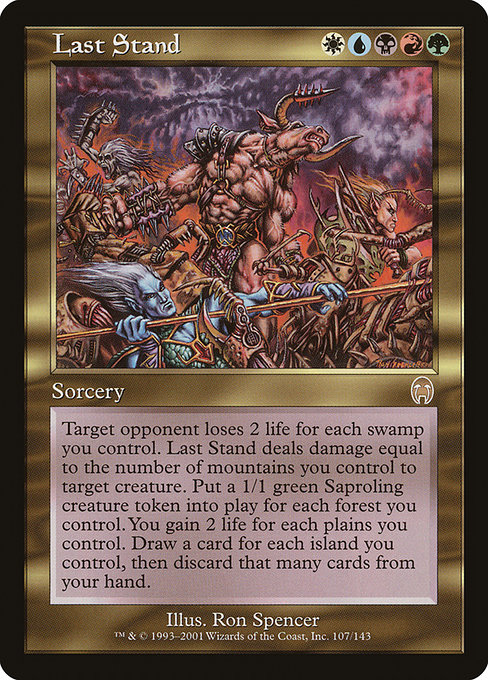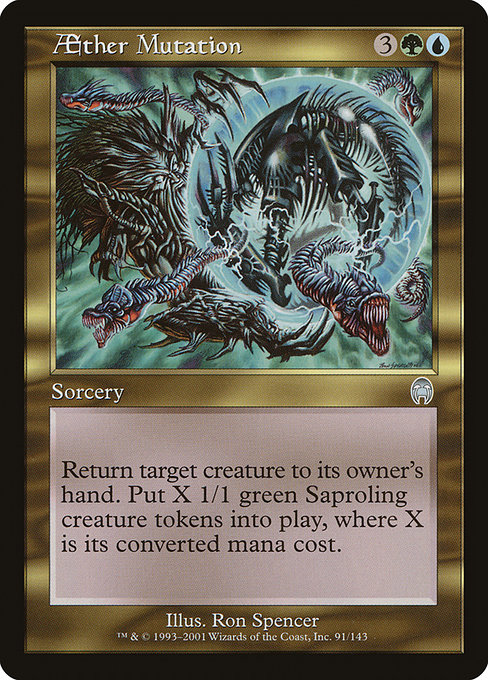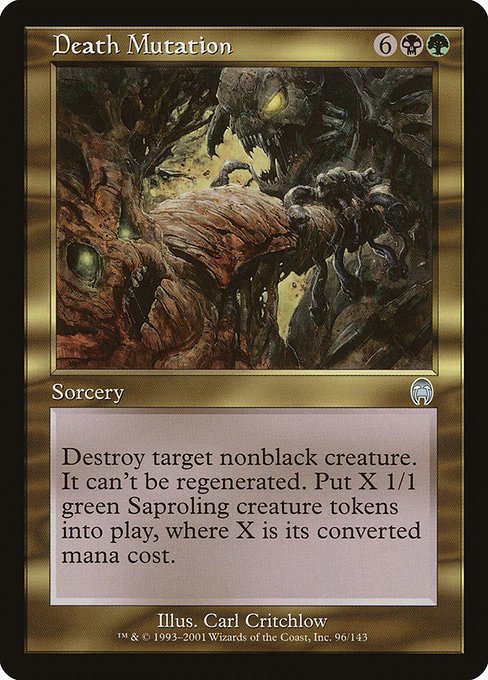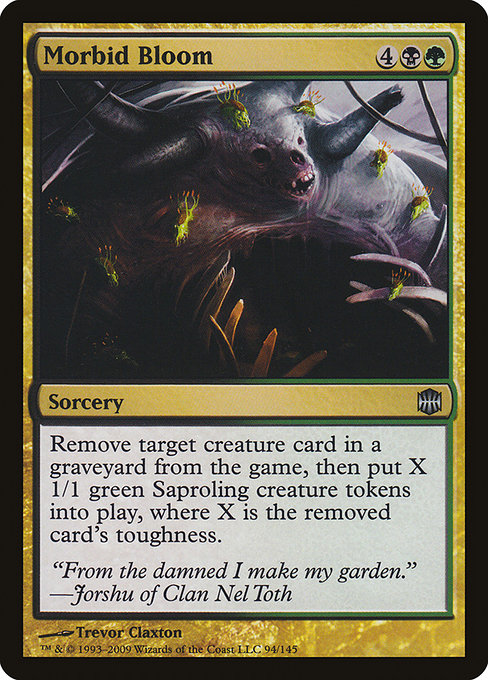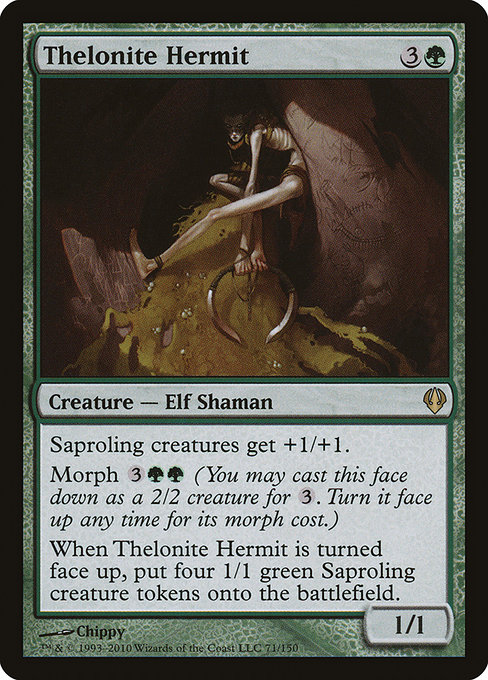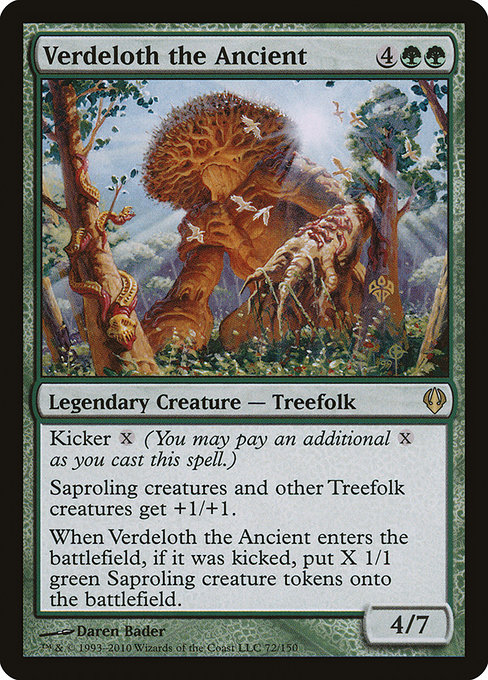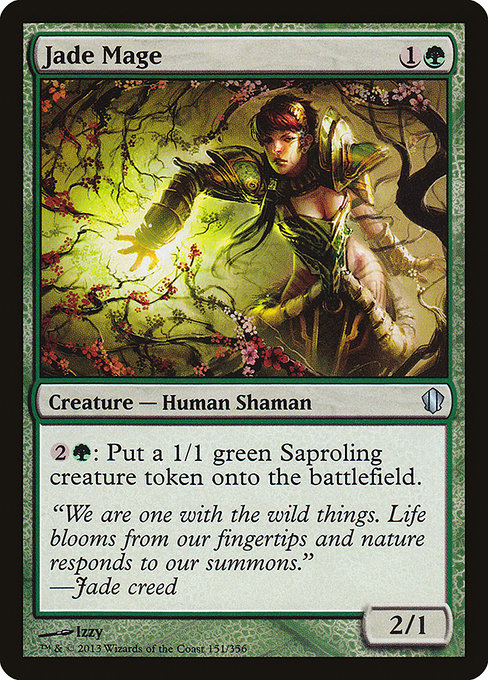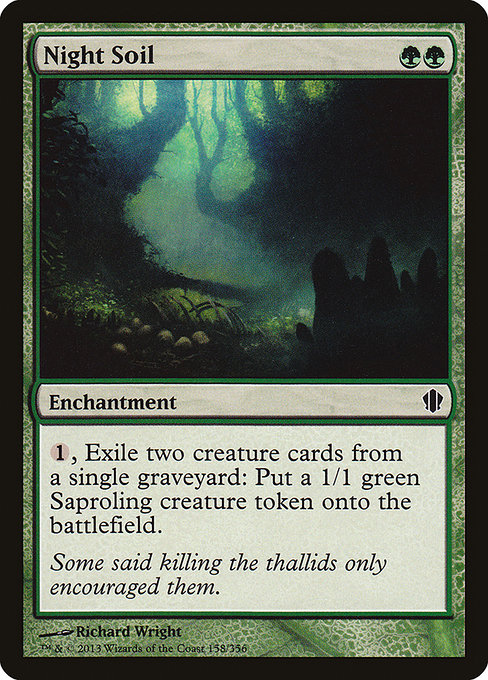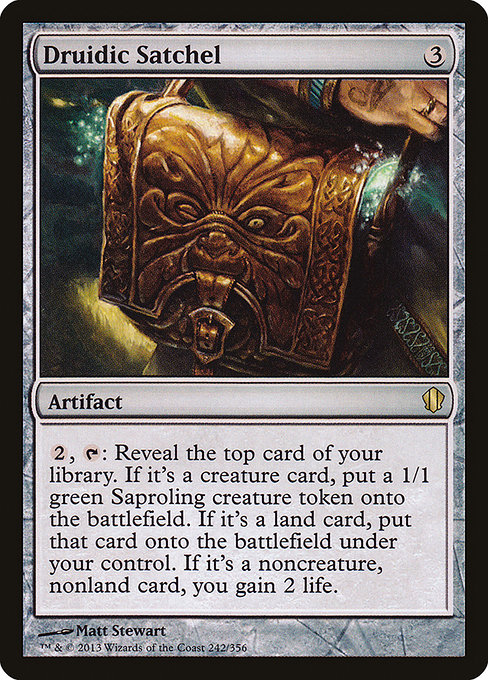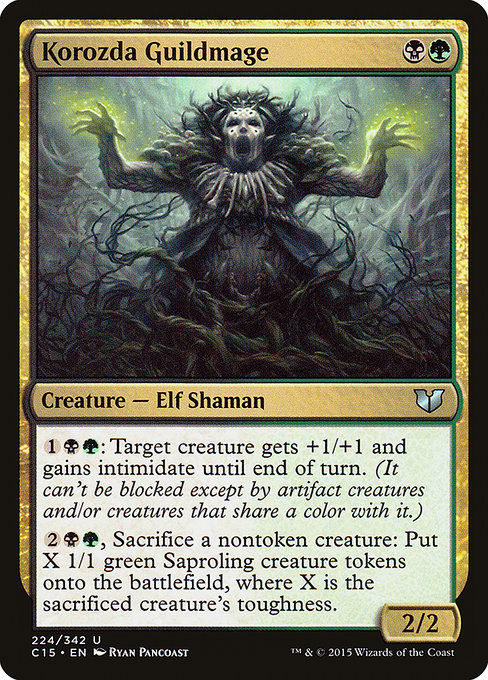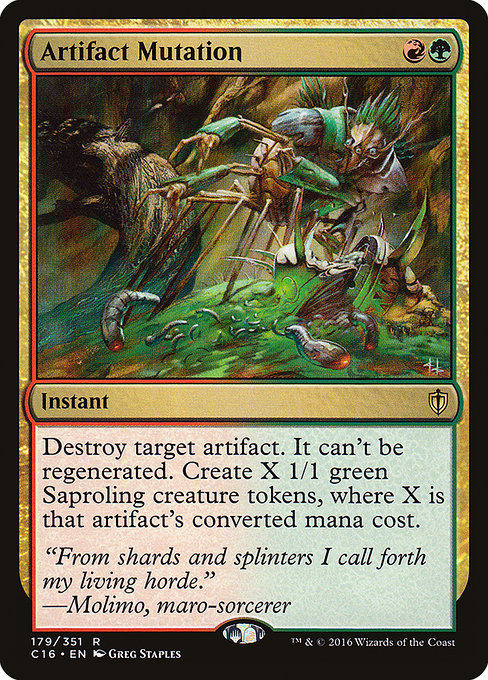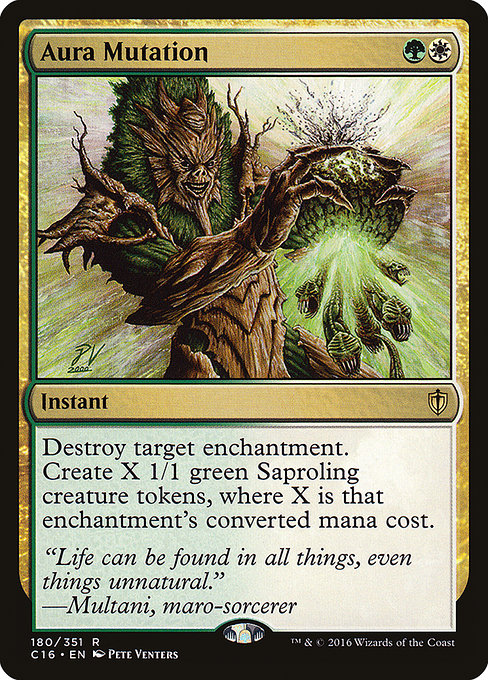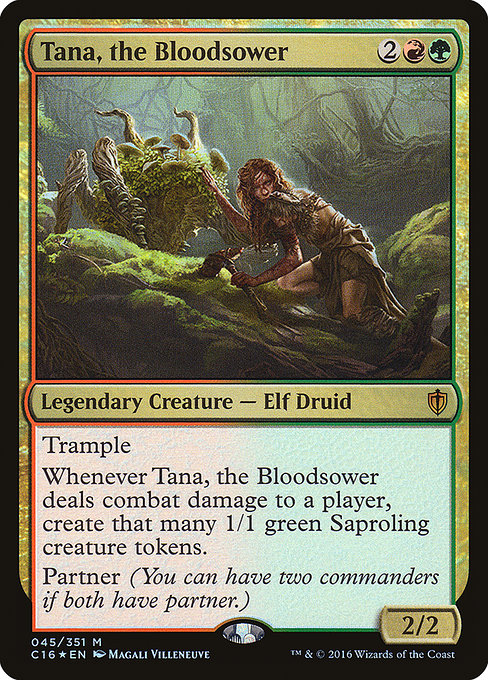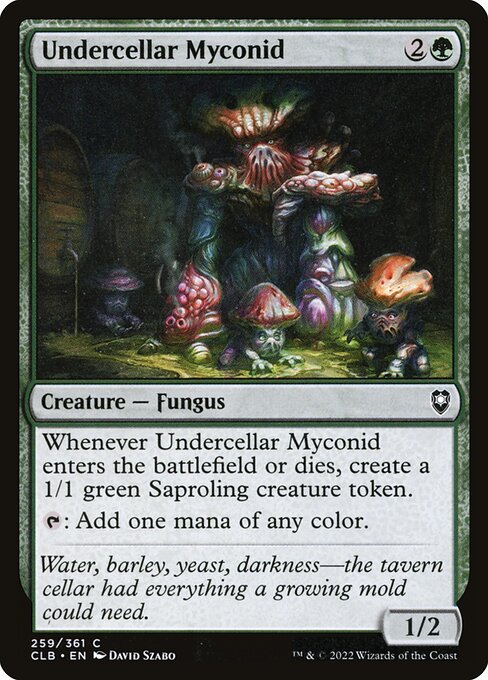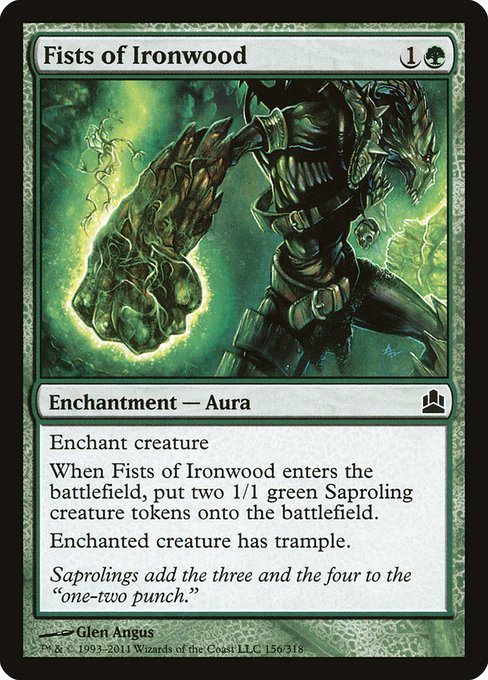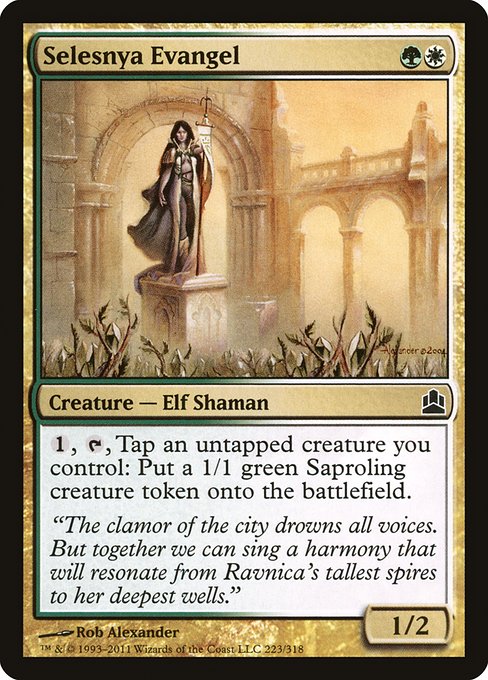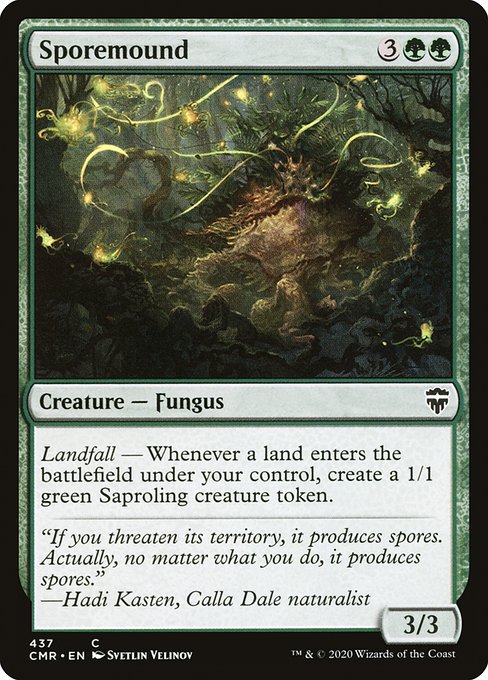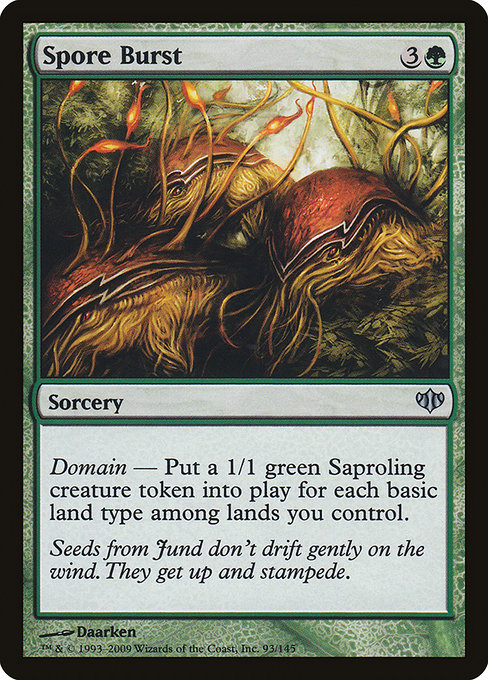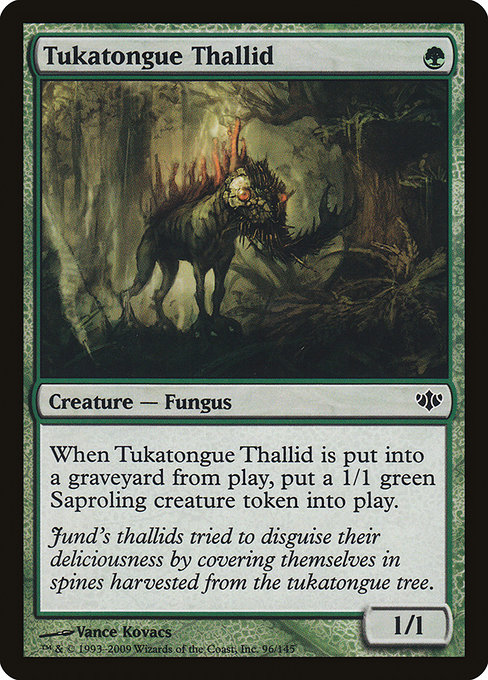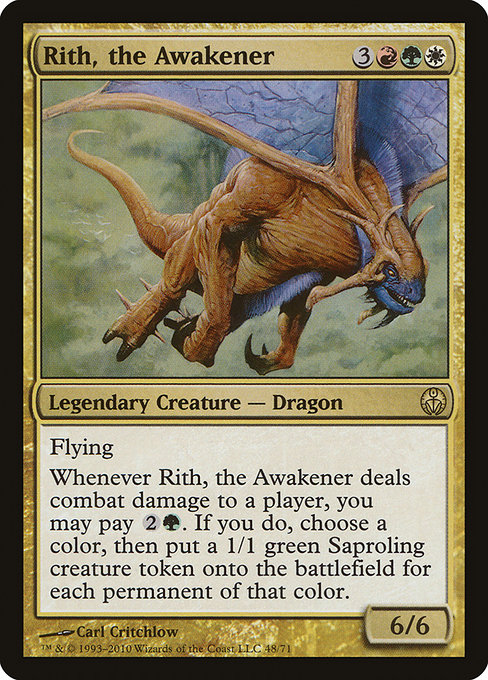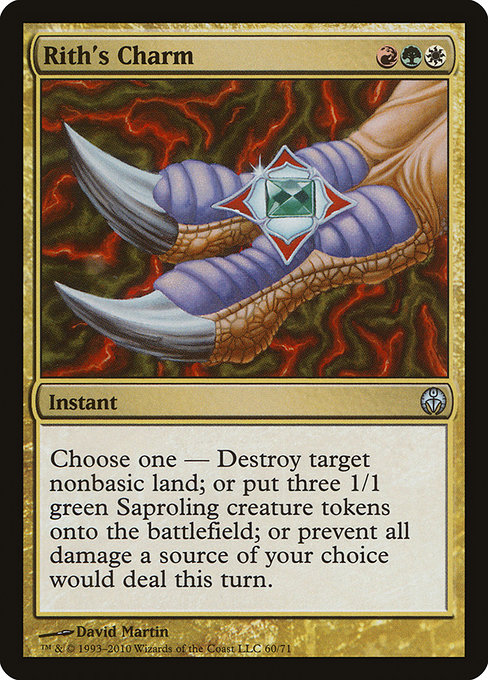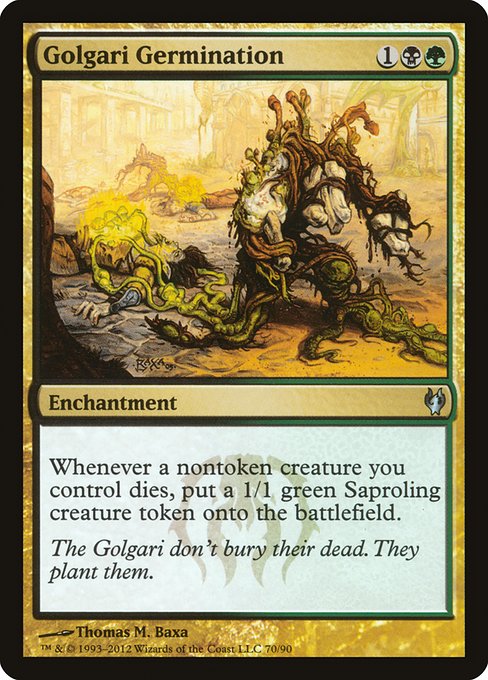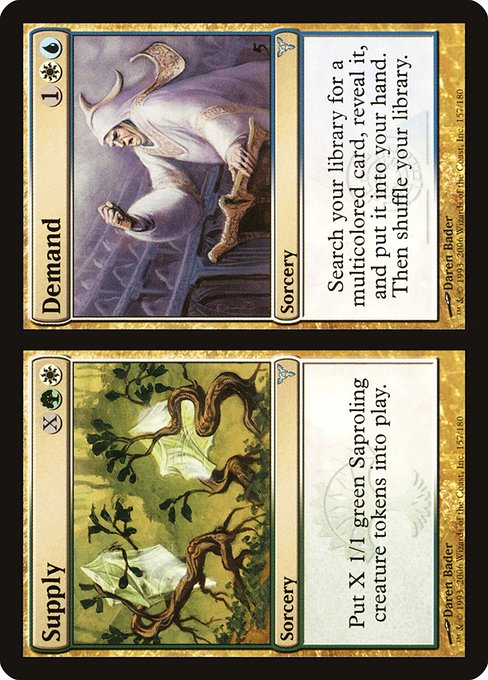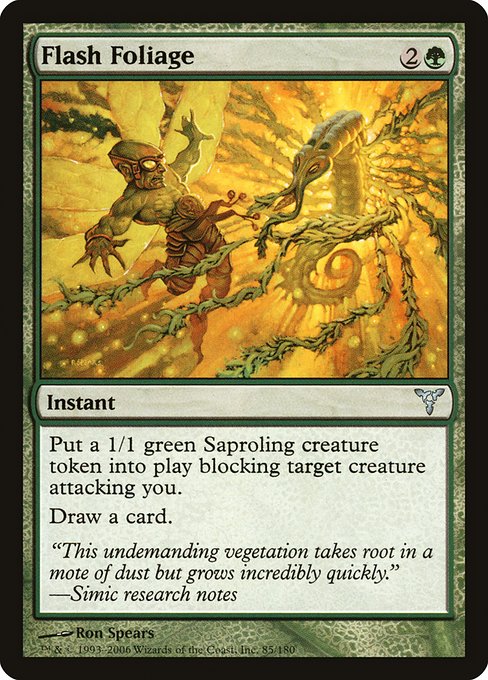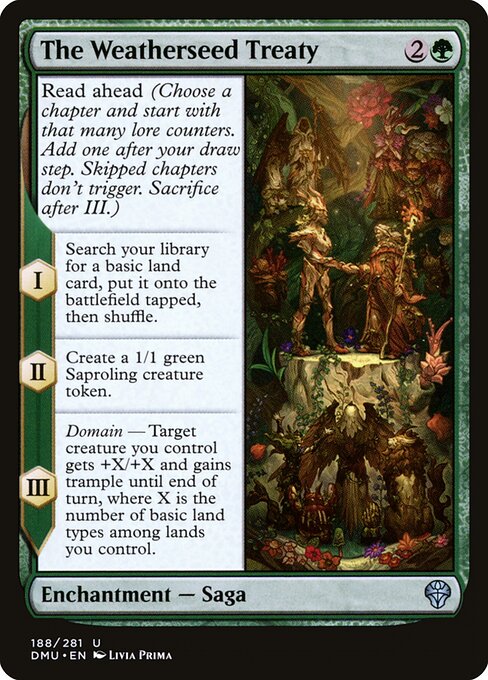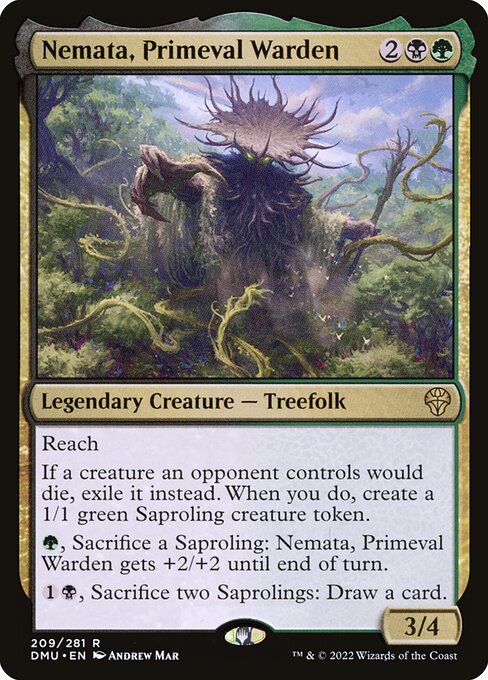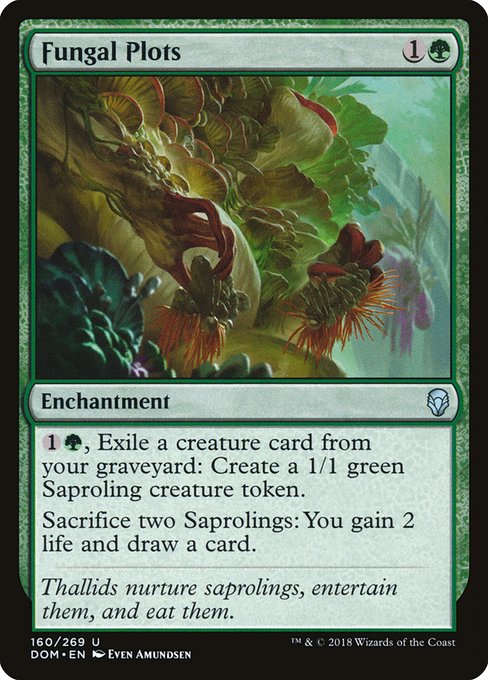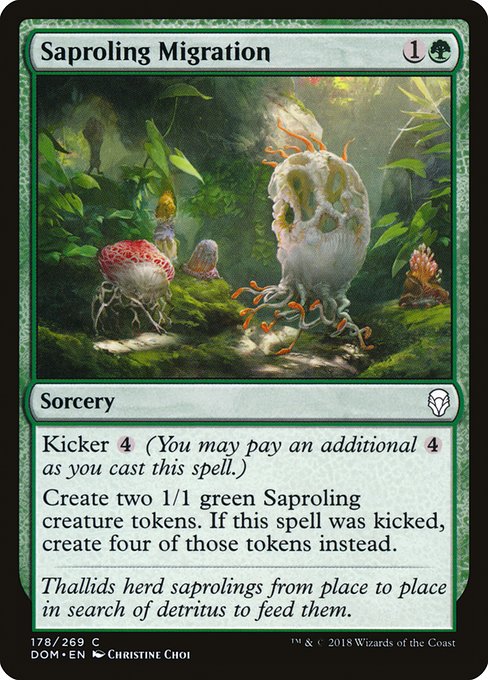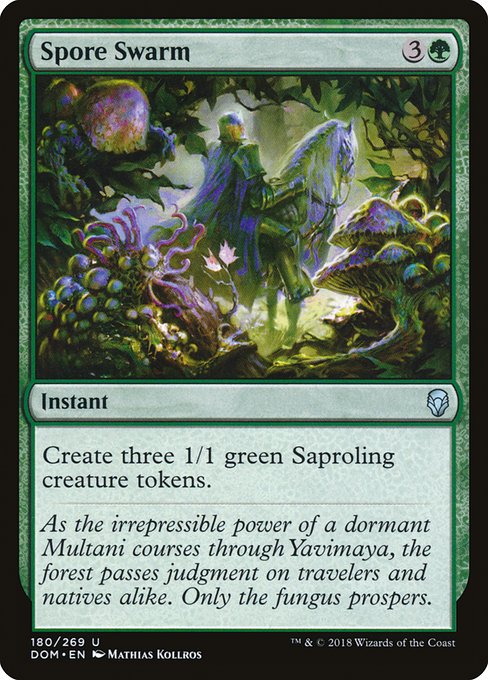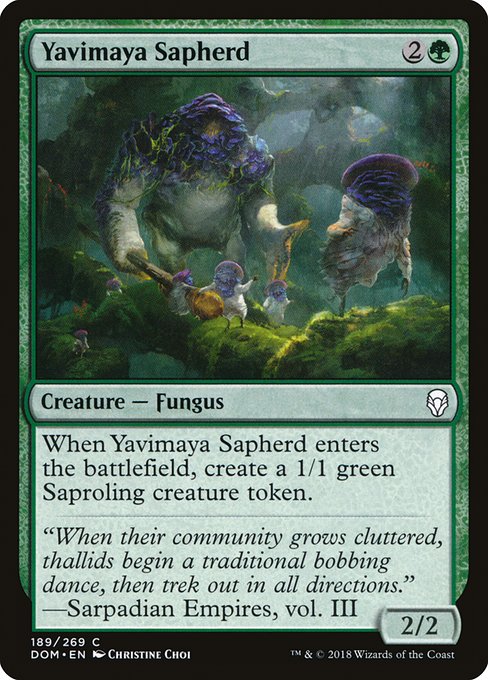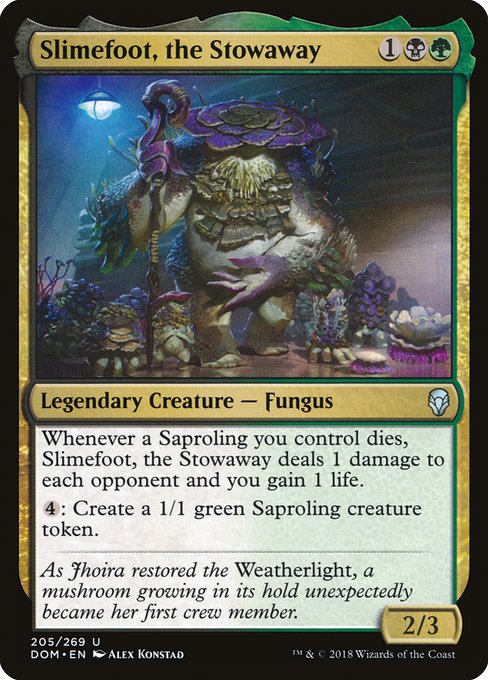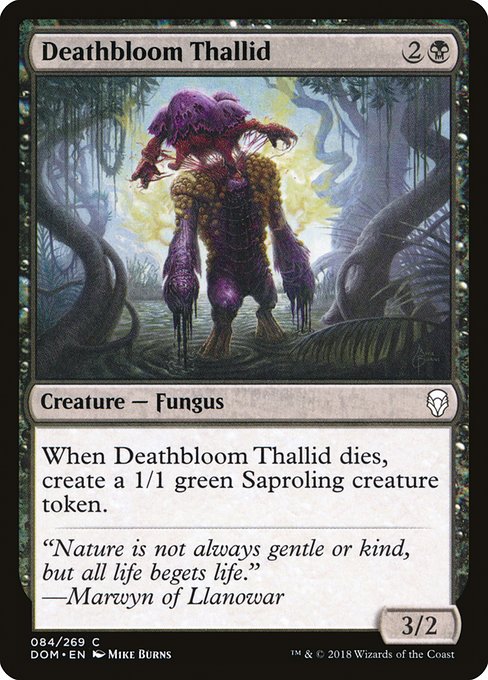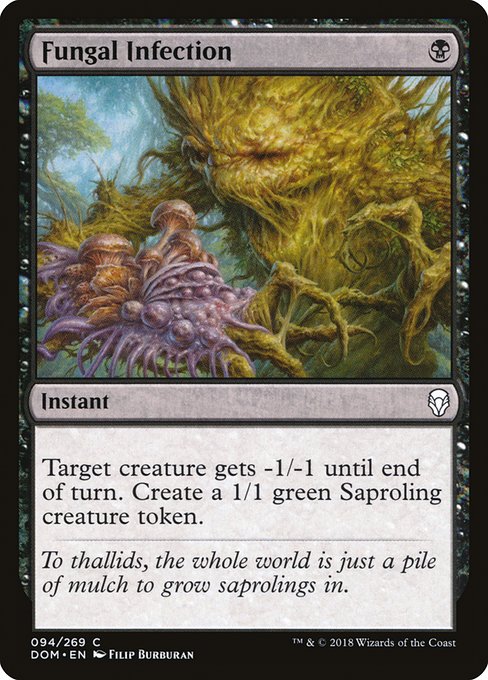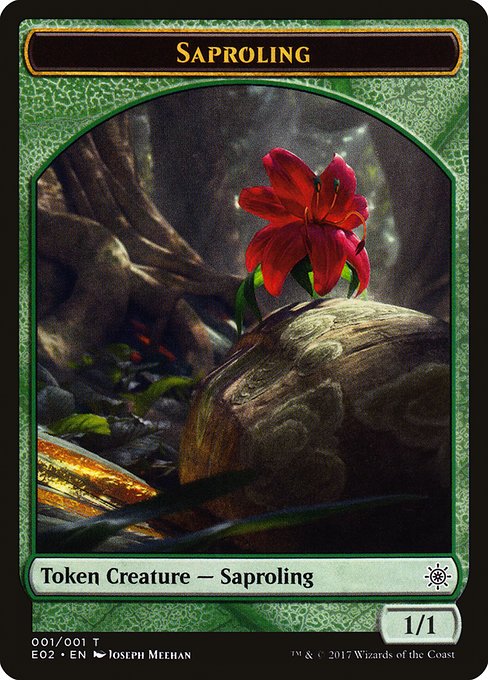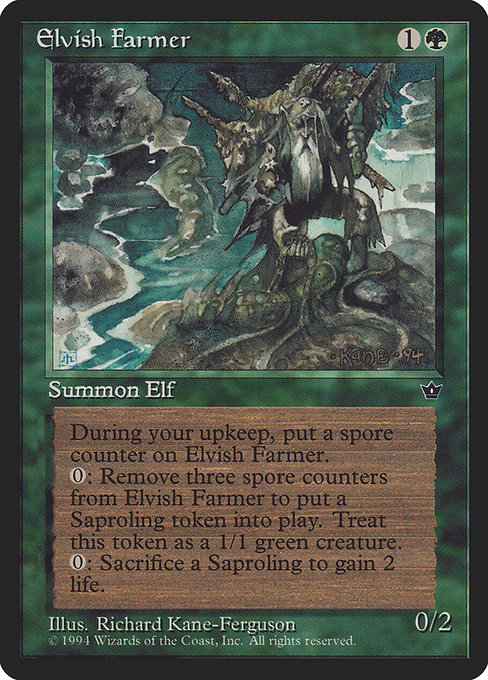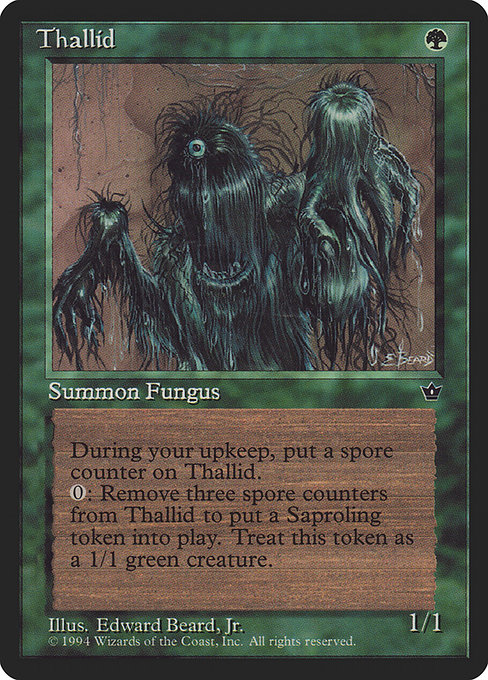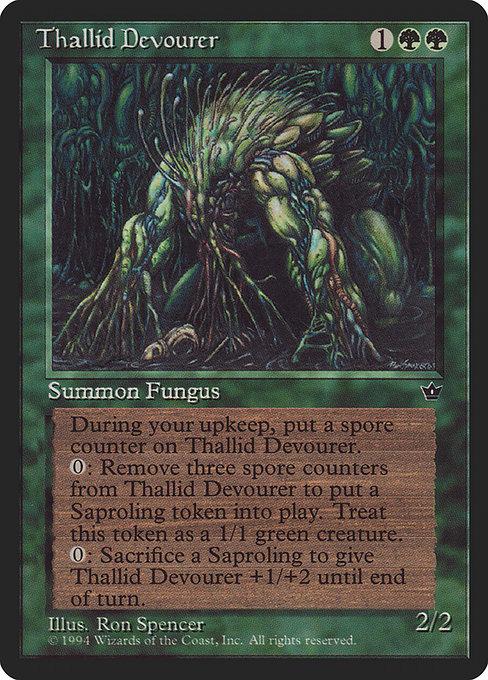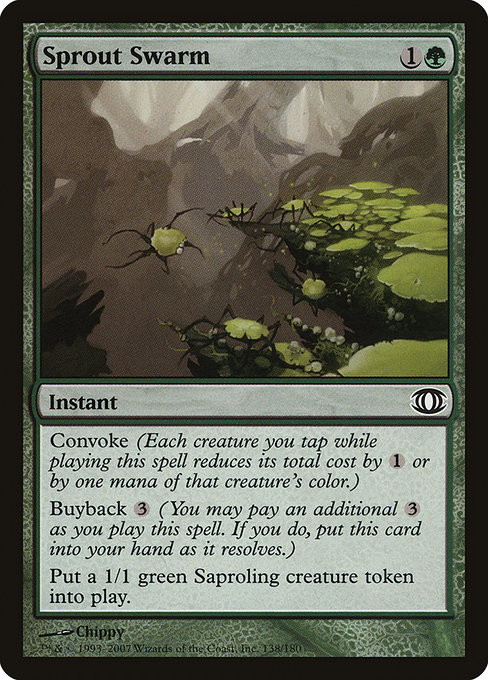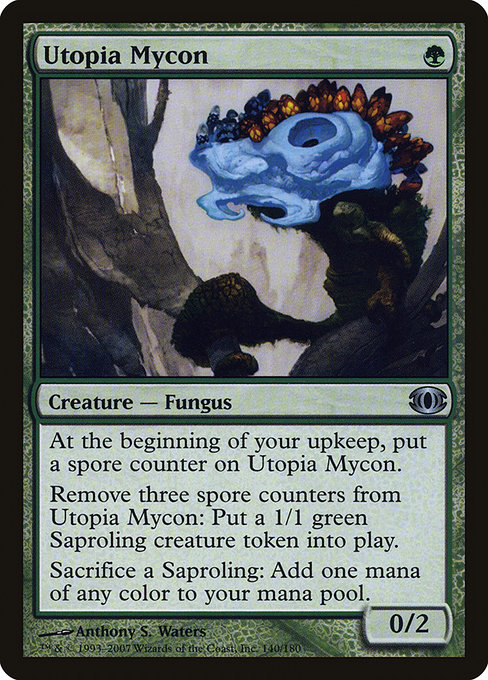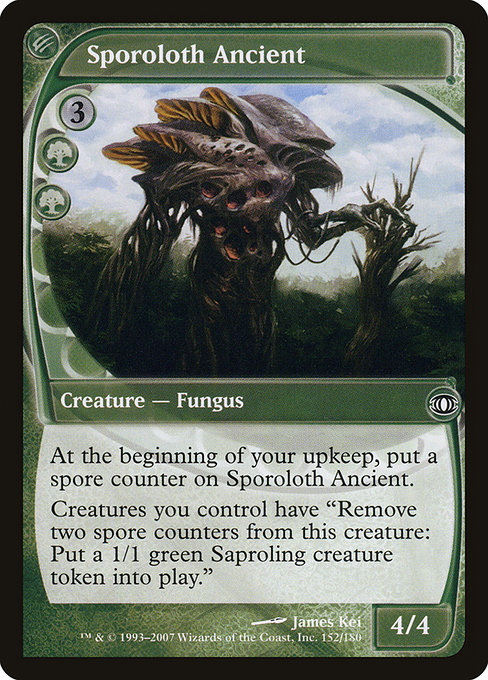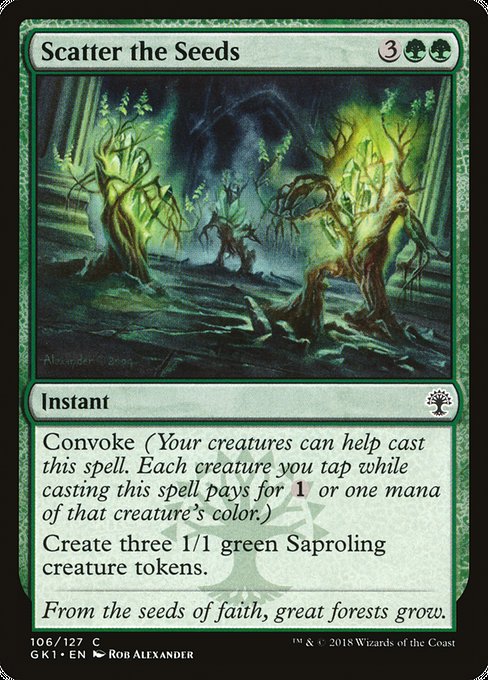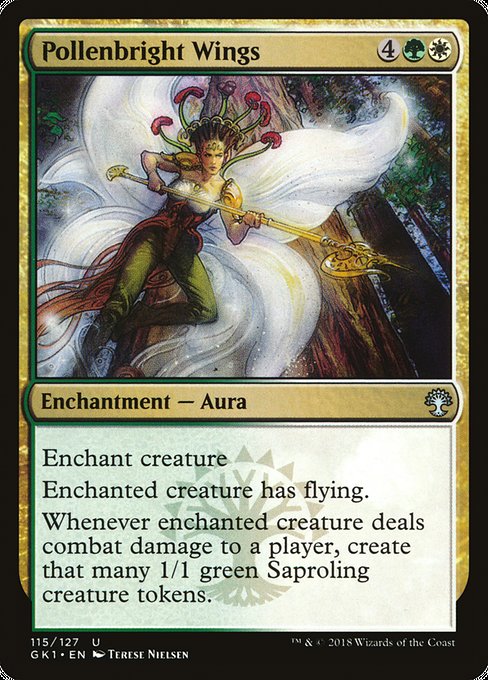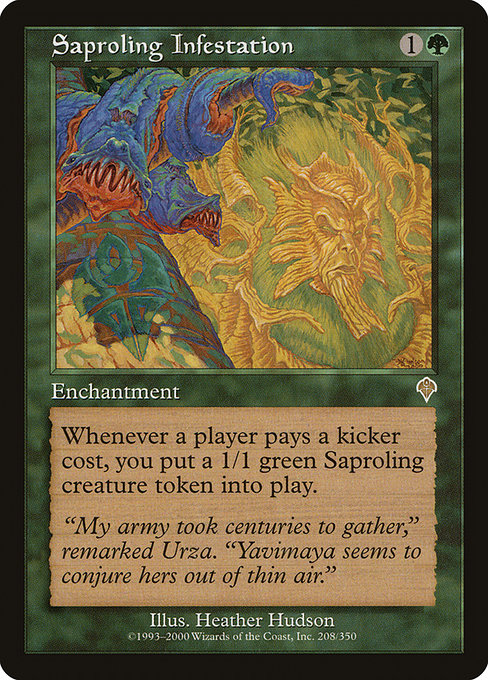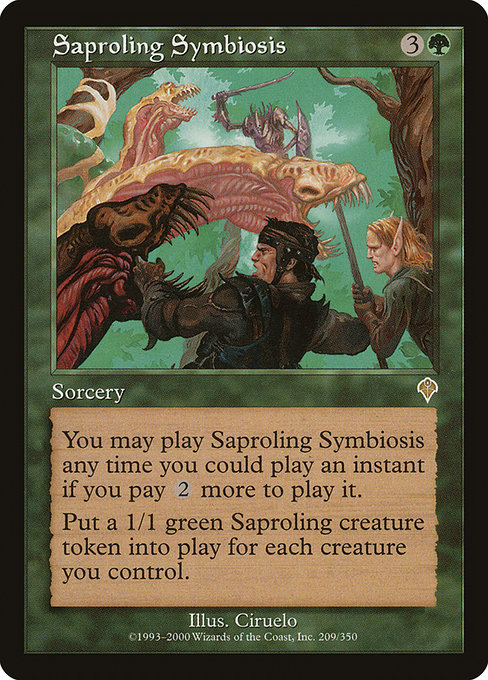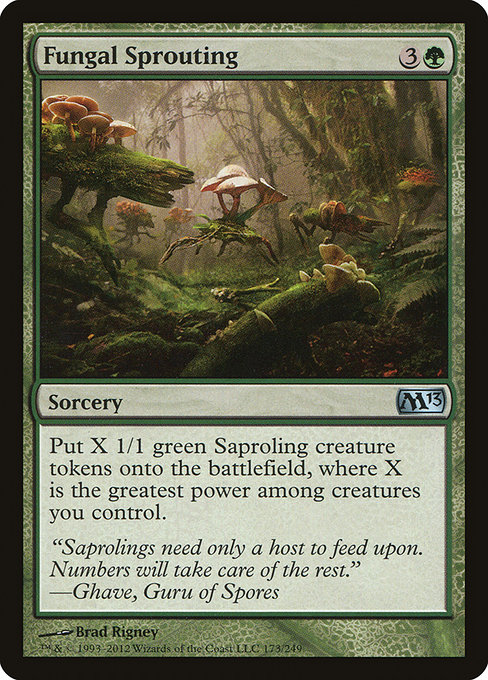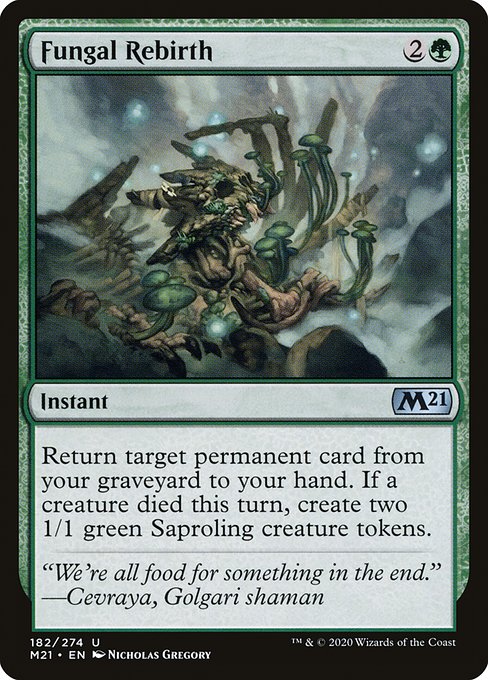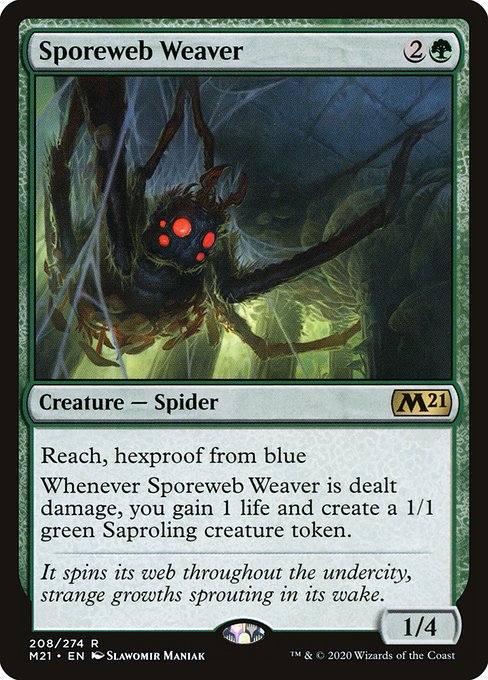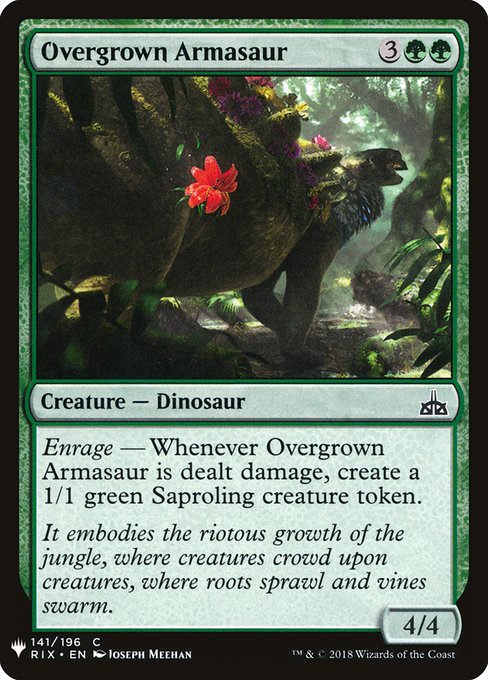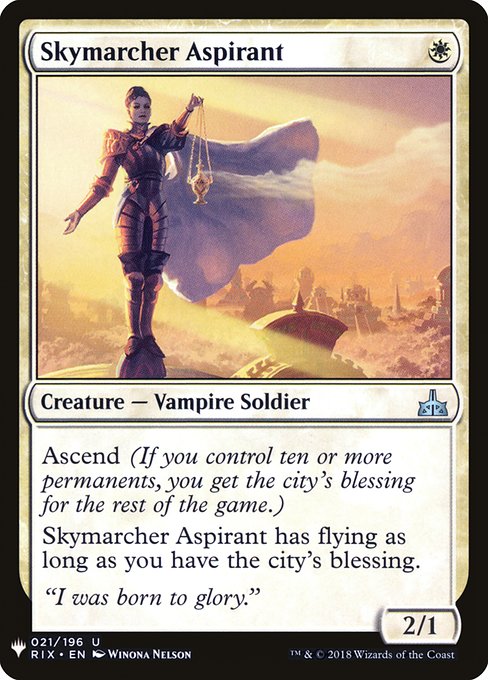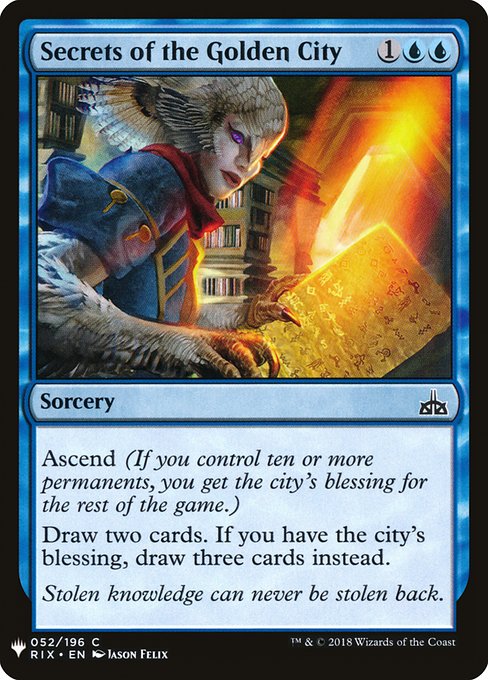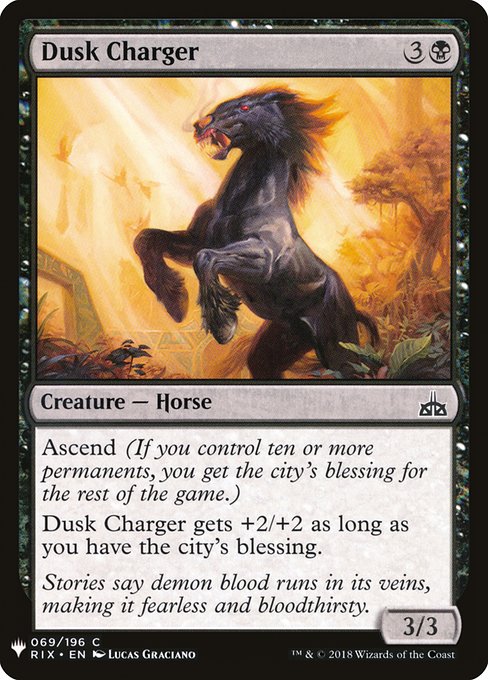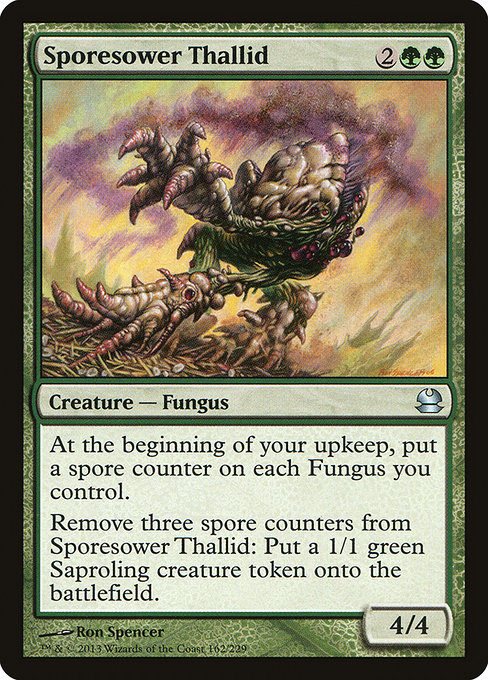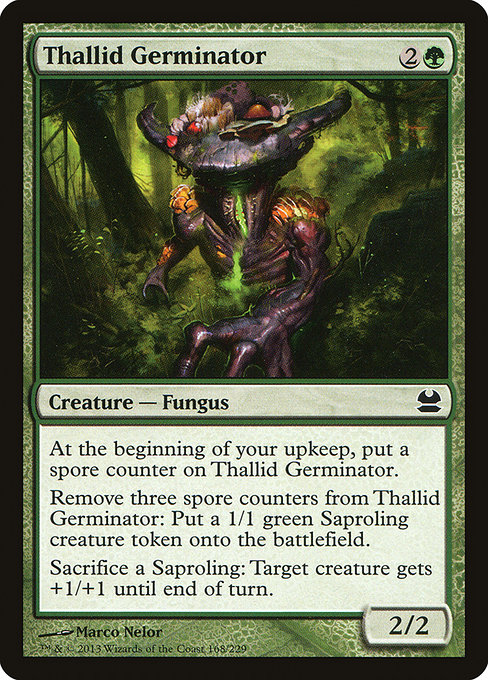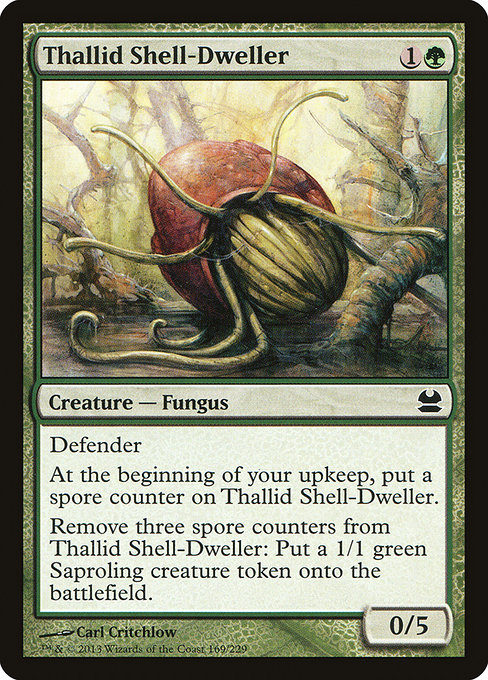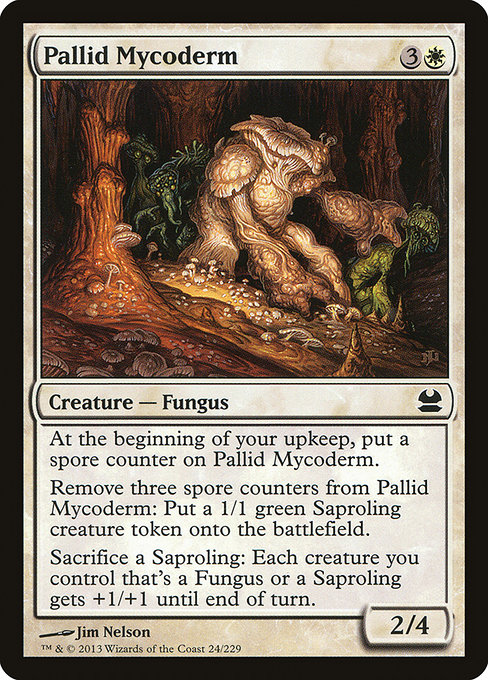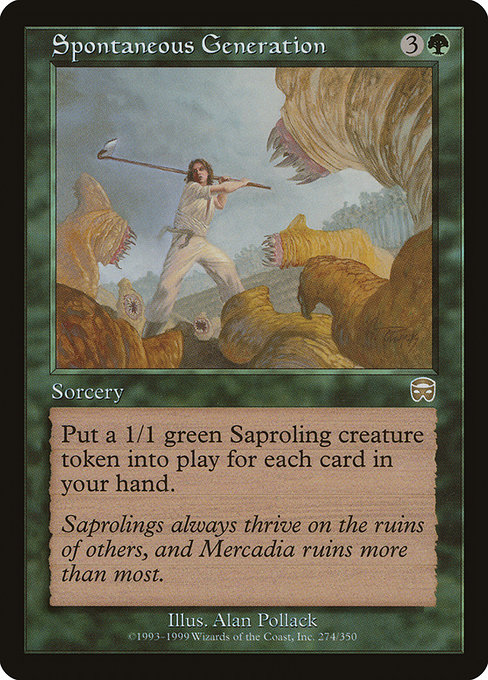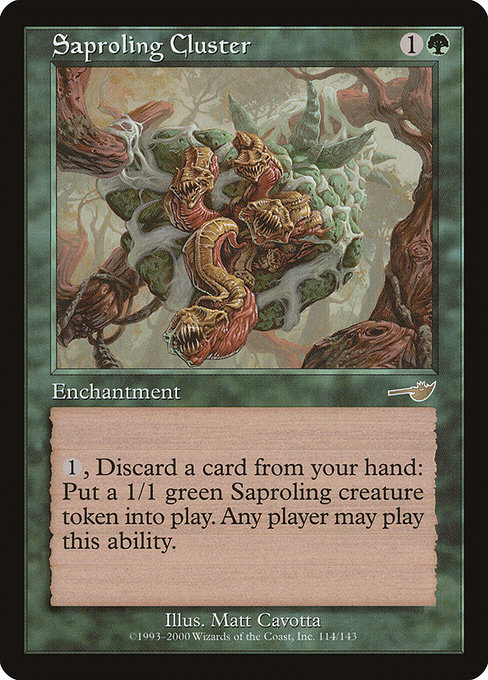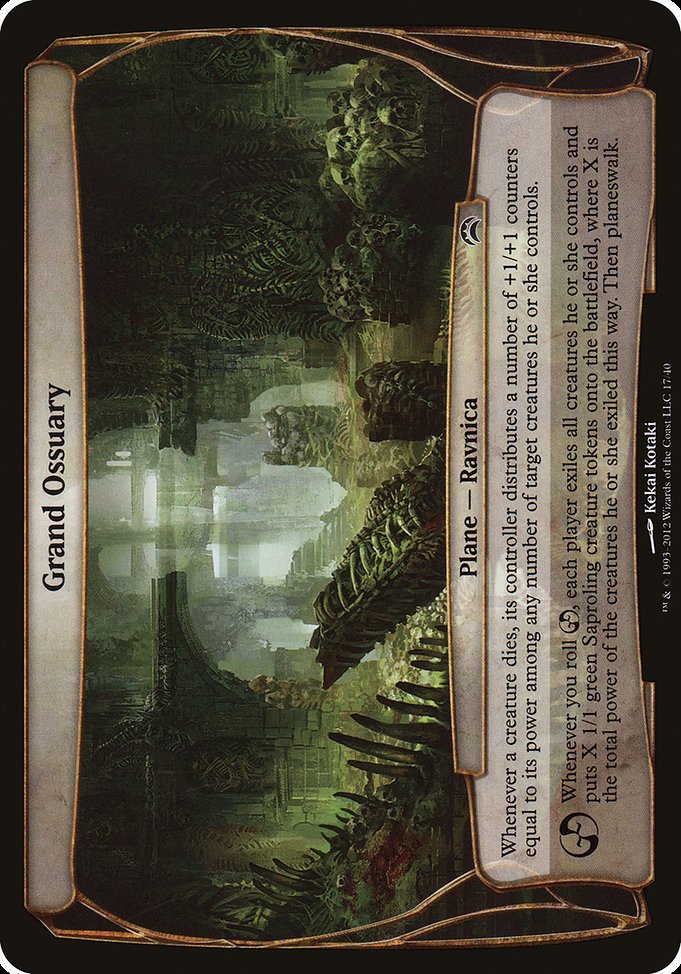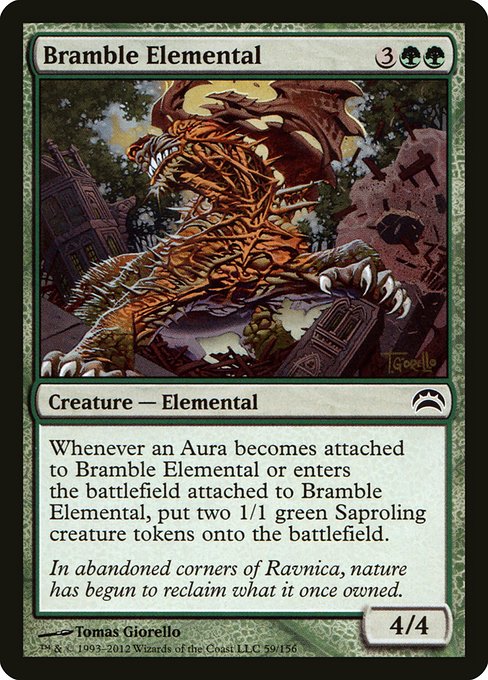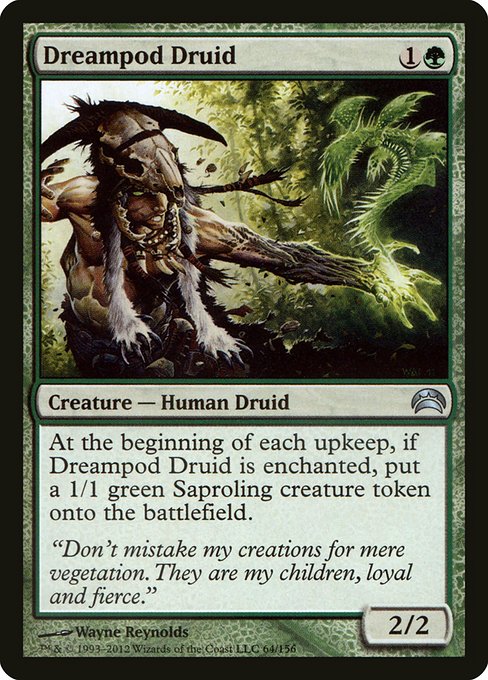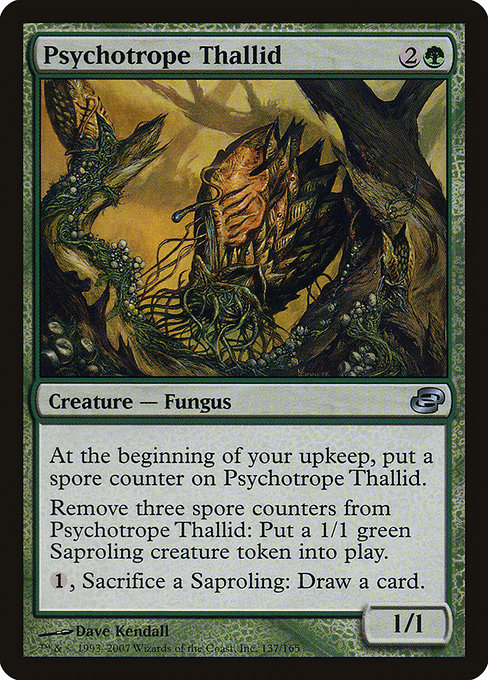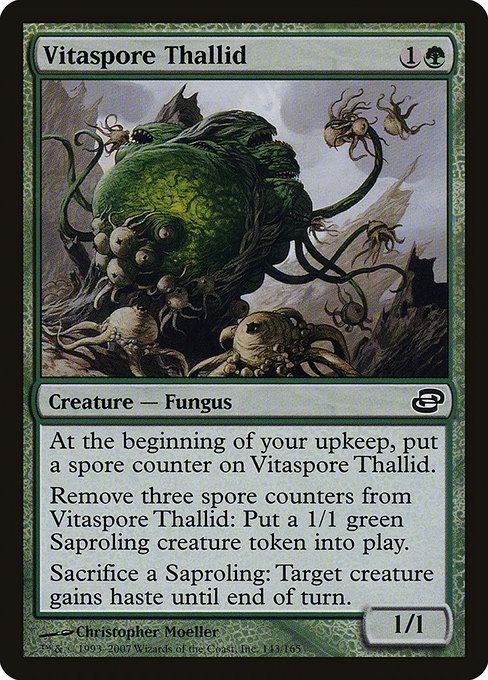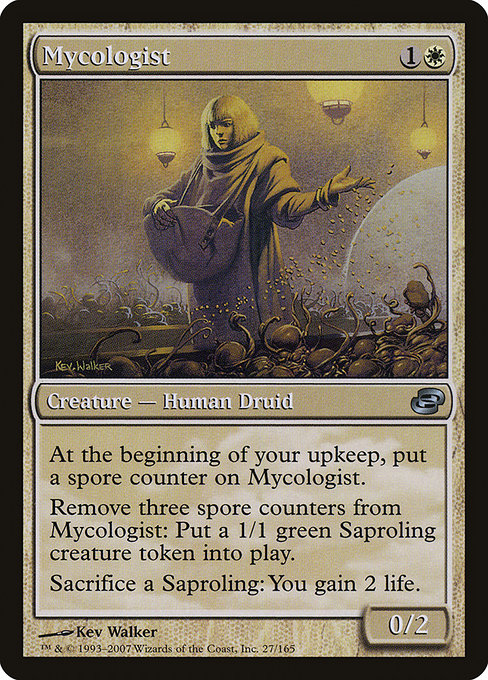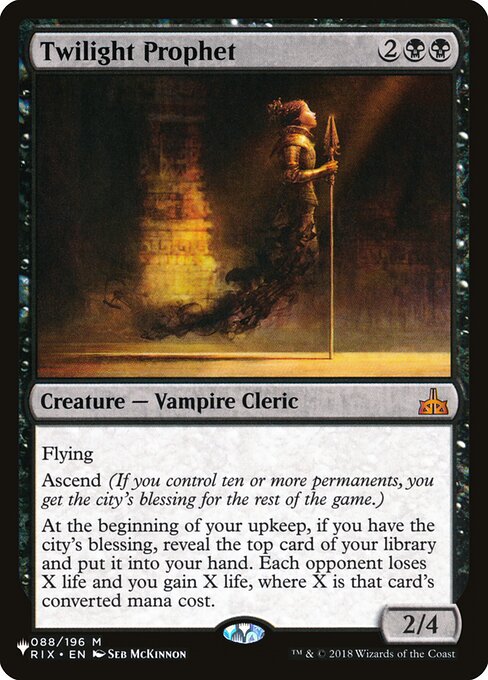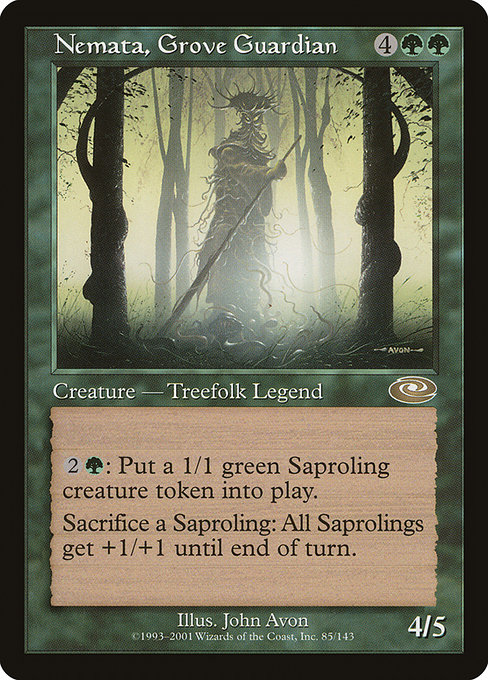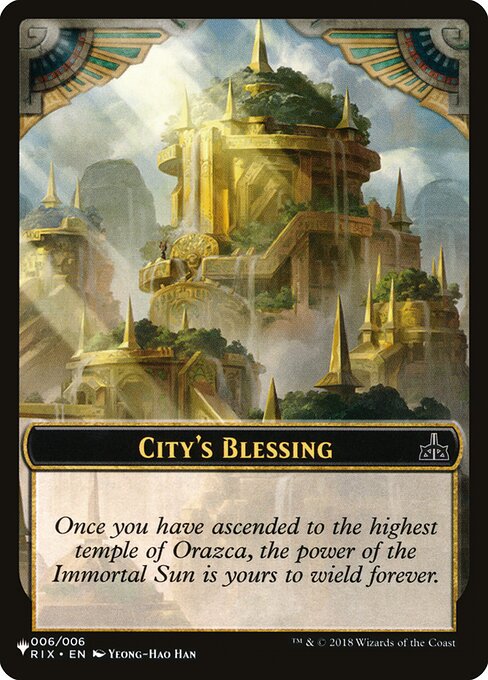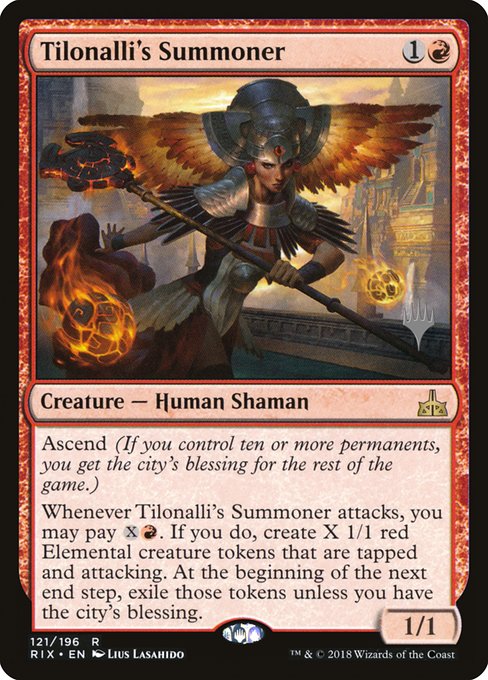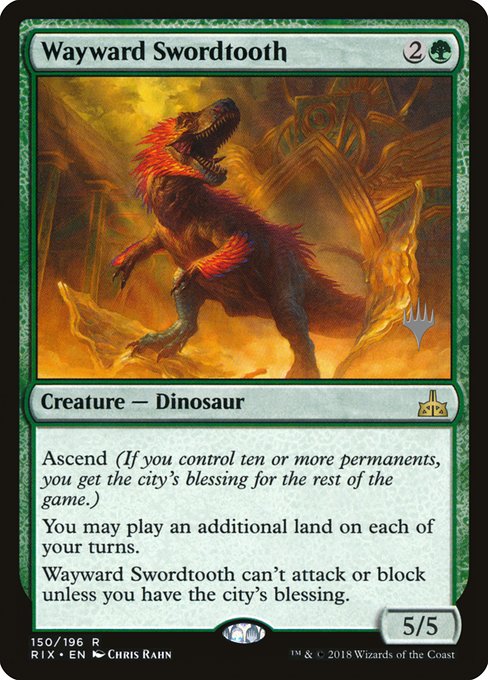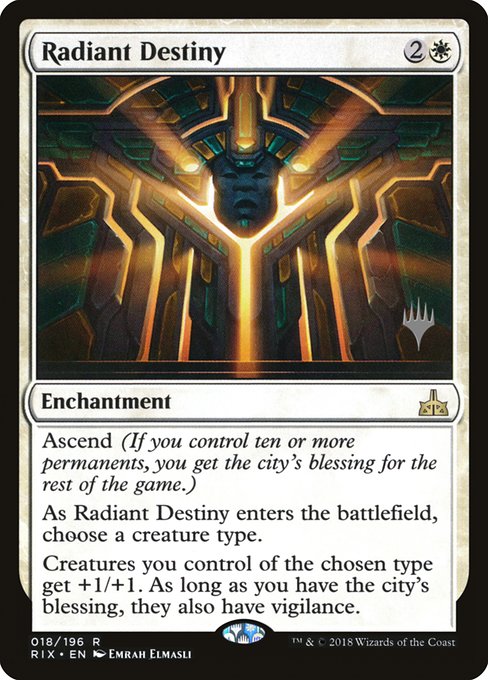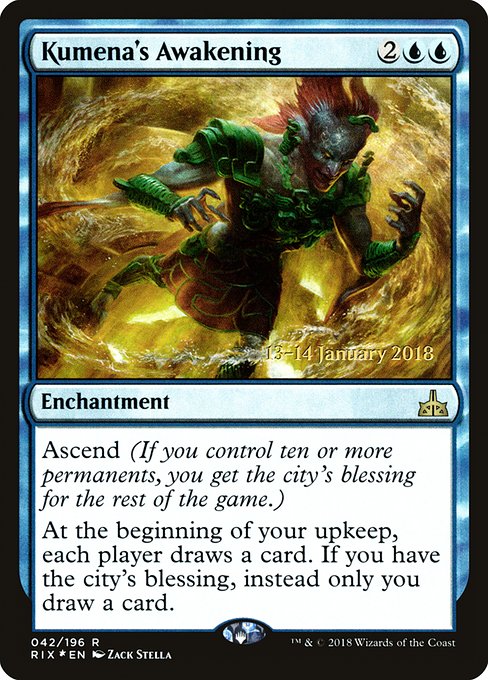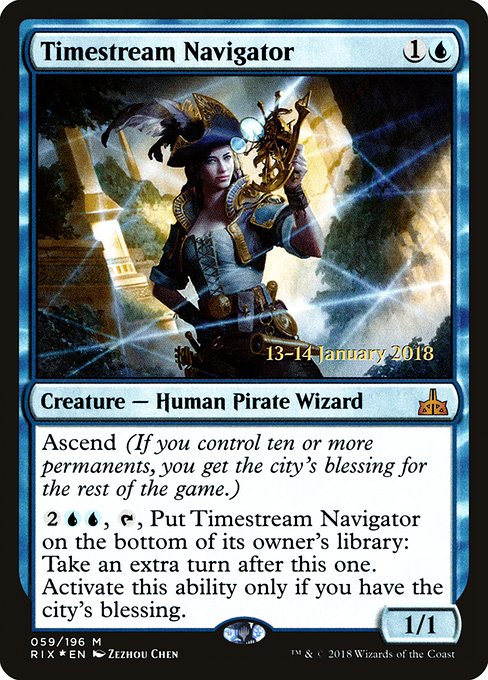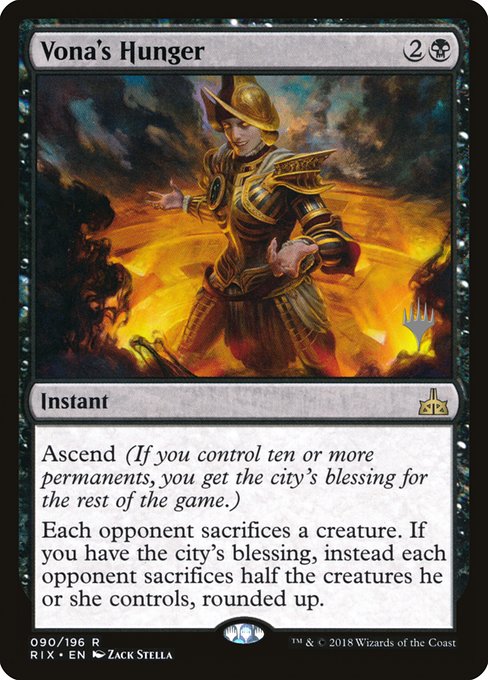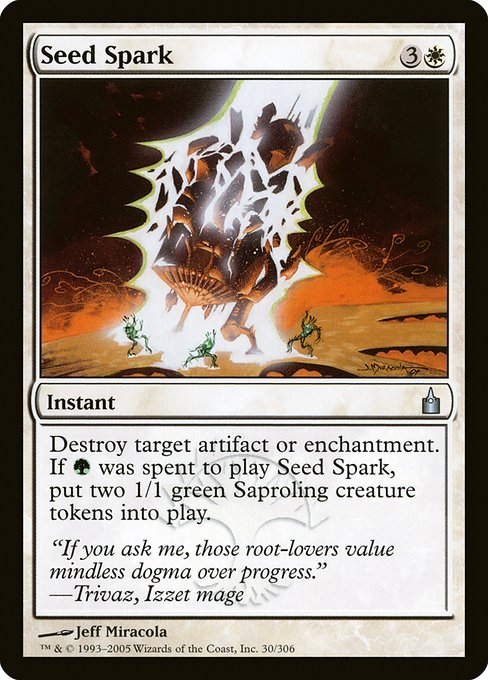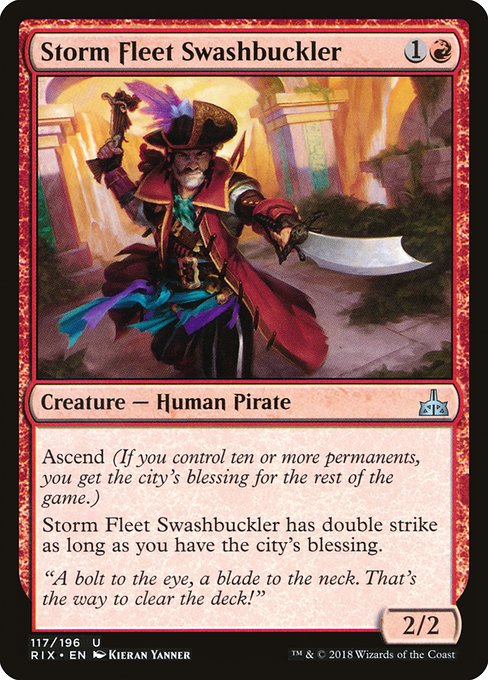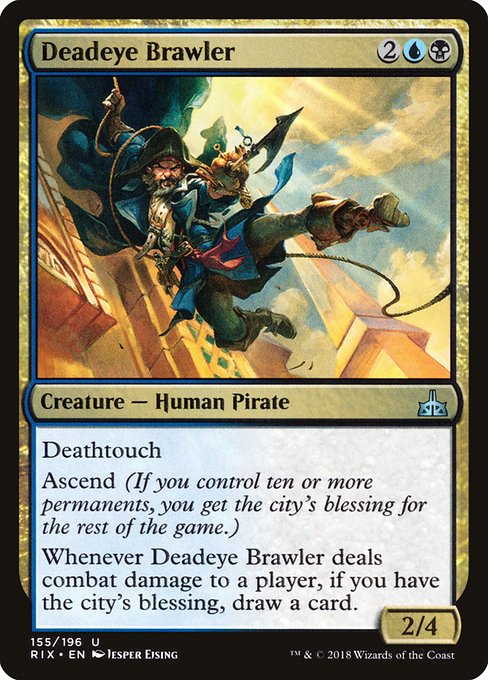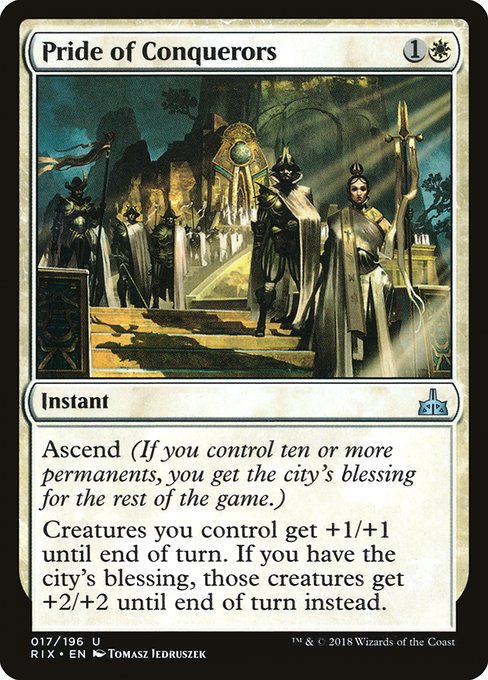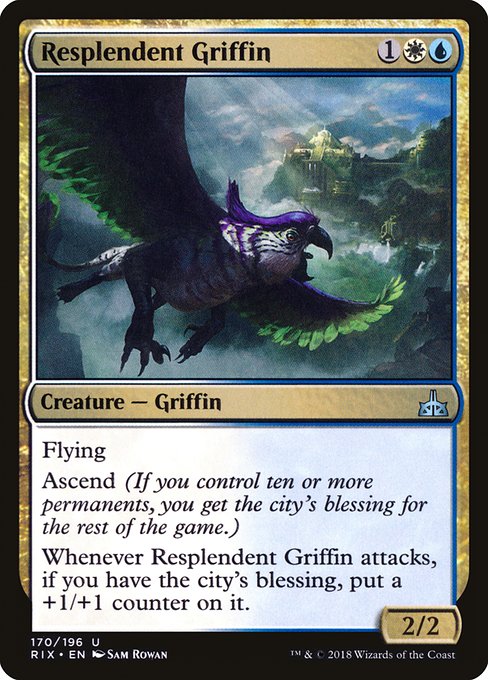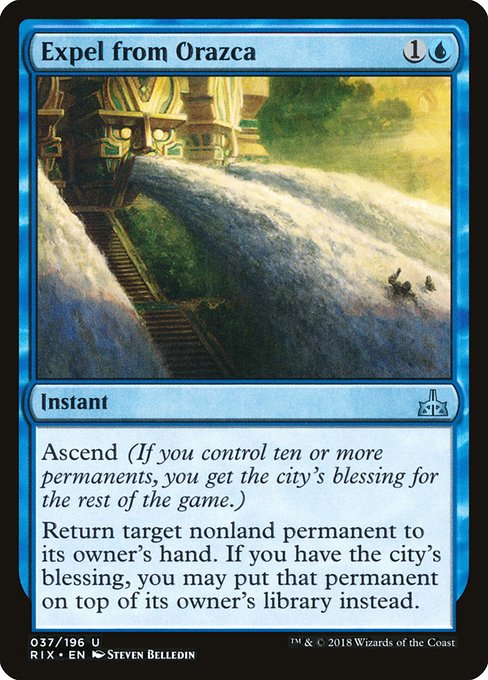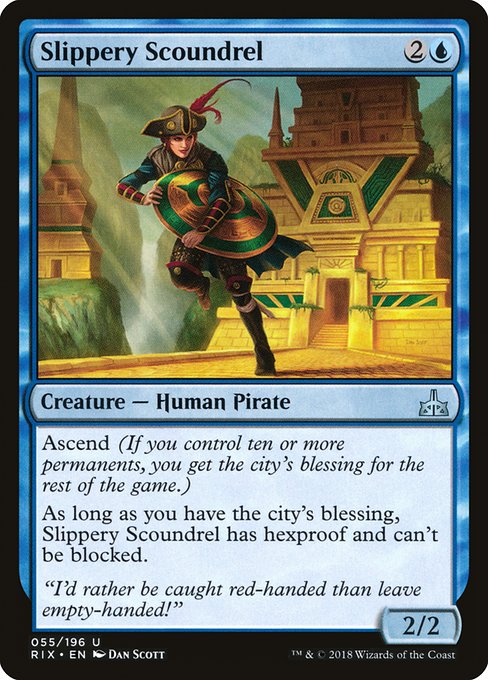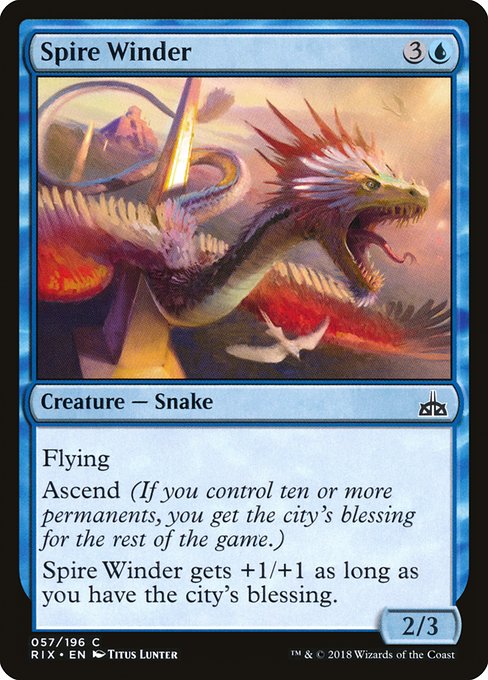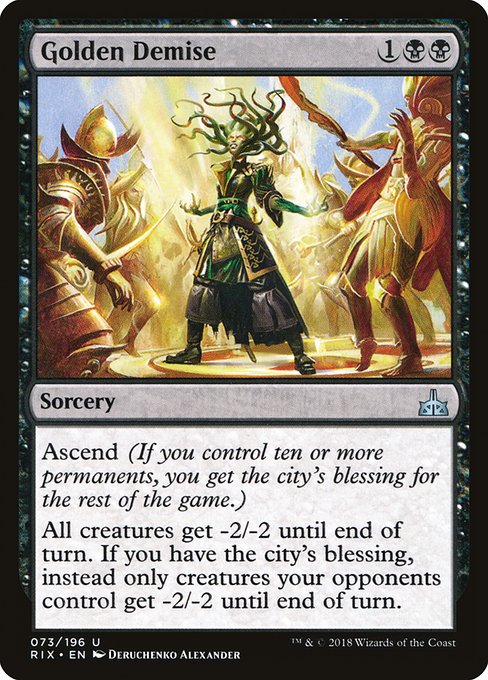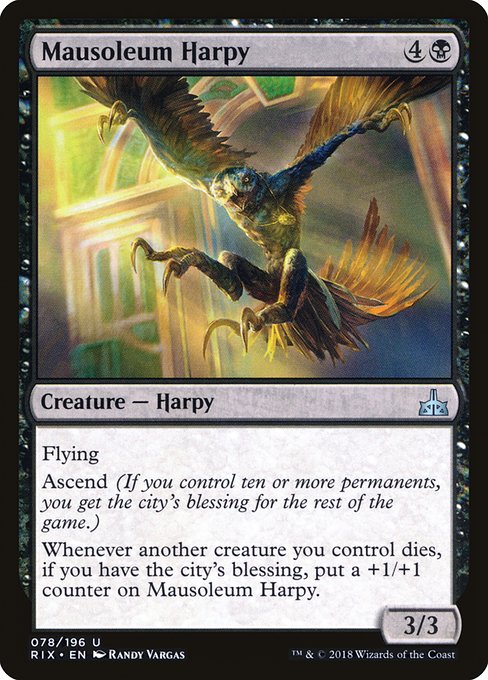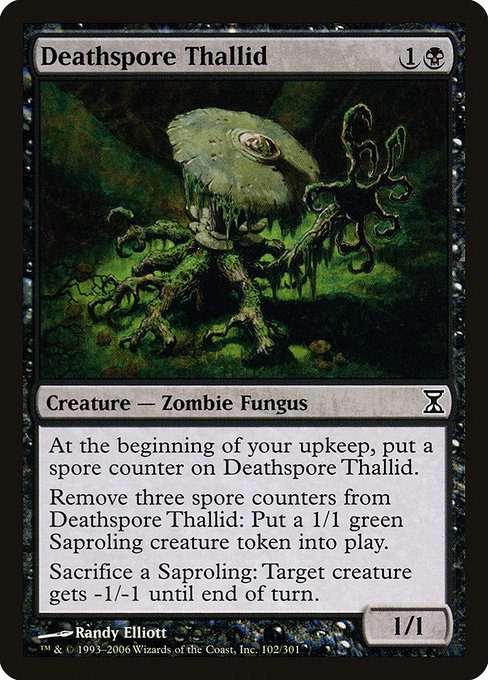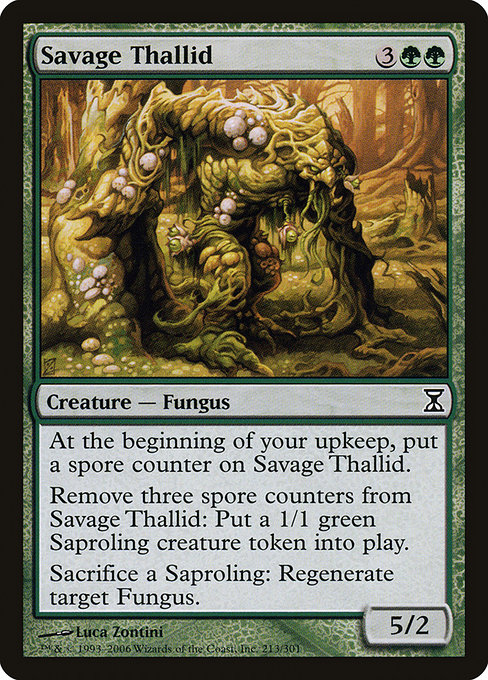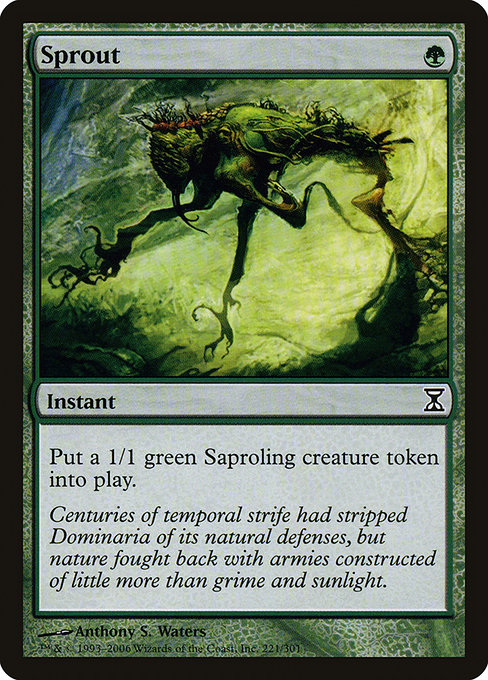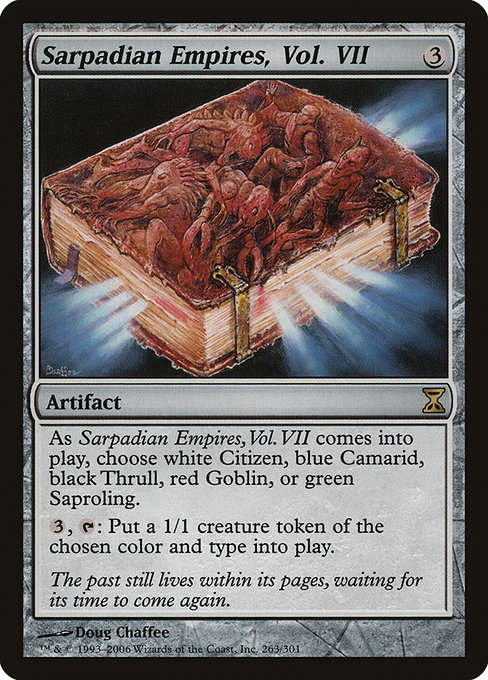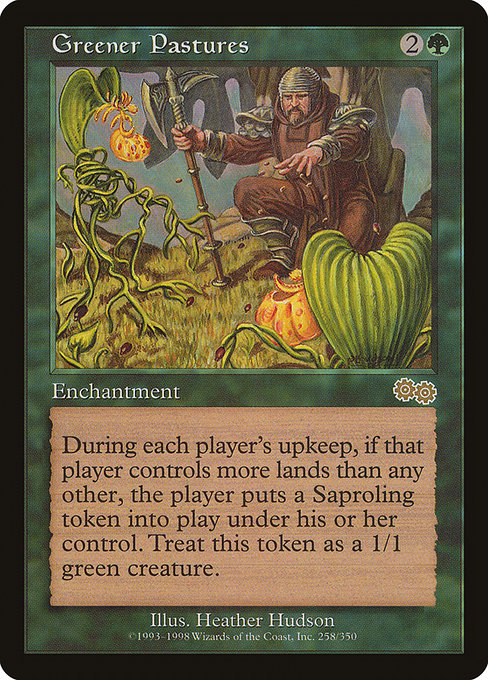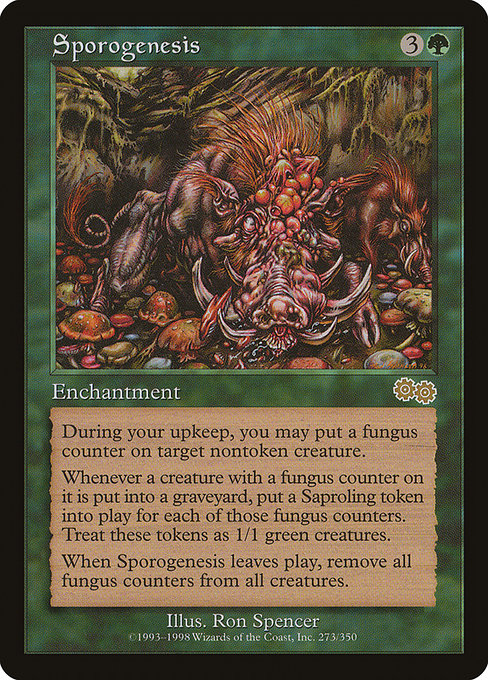standard
future
historic
gladiator
pioneer
explorer
modern
legacy
pauper
vintage
penny
commander
brawl
alchemy
paupercommander
duel
oldschool
premodern
Rulings
Because damage remains marked on a creature until it’s removed as the turn ends, nonlethal damage dealt to a Saproling you control may become lethal if Tendershoot Dryad leaves the battlefield during that turn.
If your tenth permanent enters the battlefield and then a permanent leaves the battlefield immediately afterwards (most likely due to the “Legend Rule” or due to being a creature with 0 toughness), you get the city’s blessing before it leaves the battlefield.
Once you have the city’s blessing, you have it for the rest of the game, even if you lose control of some or all of your permanents. The city’s blessing isn’t a permanent itself and can’t be removed by any effect.
A permanent is any object on the battlefield, including tokens and lands. Spells and emblems aren’t permanents.
Ascend on a permanent isn’t a triggered ability and doesn’t use the stack. Players can respond to a spell that will give you your tenth permanent, but they can’t respond to getting the city’s blessing once you control that tenth permanent. This means that if your tenth permanent is a land you play, players can’t respond before you get the city’s blessing.
Some cards get power, toughness, and/or abilities once you have the city’s blessing. If another card has an ability that triggers when creatures with certain characteristics enter the battlefield (such as Mentor of the Meek or Elemental Bond do), use the entering permanent’s characteristics after you have the city’s blessing to determine whether those abilities trigger. This is true even if the entering permanent is your tenth permanent.
If you control ten permanents but don’t control a permanent or resolving spell with ascend, you don’t get the city’s blessing. For example, if you control ten permanents, lose control of one, then cast Golden Demise, you won’t have the city’s blessing and the spell will affect creatures you control.
If you cast a spell with ascend, you don’t get the city’s blessing until it resolves. Players may respond to that spell by trying to change whether you get the city’s blessing.
If your tenth permanent enters the battlefield and then a permanent leaves the battlefield immediately afterwards (most likely due to the “Legend Rule” or due to being a creature with 0 toughness), you get the city’s blessing before it leaves the battlefield.
Once you have the city’s blessing, you have it for the rest of the game, even if you lose control of some or all of your permanents. The city’s blessing isn’t a permanent itself and can’t be removed by any effect.
A permanent is any object on the battlefield, including tokens and lands. Spells and emblems aren’t permanents.
Ascend on a permanent isn’t a triggered ability and doesn’t use the stack. Players can respond to a spell that will give you your tenth permanent, but they can’t respond to getting the city’s blessing once you control that tenth permanent. This means that if your tenth permanent is a land you play, players can’t respond before you get the city’s blessing.
Some cards get power, toughness, and/or abilities once you have the city’s blessing. If another card has an ability that triggers when creatures with certain characteristics enter the battlefield (such as Mentor of the Meek or Elemental Bond do), use the entering permanent’s characteristics after you have the city’s blessing to determine whether those abilities trigger. This is true even if the entering permanent is your tenth permanent.
If you control ten permanents but don’t control a permanent or resolving spell with ascend, you don’t get the city’s blessing. For example, if you control ten permanents, lose control of one, then cast Golden Demise, you won’t have the city’s blessing and the spell will affect creatures you control.
If you cast a spell with ascend, you don’t get the city’s blessing until it resolves. Players may respond to that spell by trying to change whether you get the city’s blessing.
Rulings
Because damage remains marked on a creature until it’s removed as the turn ends, nonlethal damage dealt to a Saproling you control may become lethal if Tendershoot Dryad leaves the battlefield during that turn.
If your tenth permanent enters the battlefield and then a permanent leaves the battlefield immediately afterwards (most likely due to the “Legend Rule” or due to being a creature with 0 toughness), you get the city’s blessing before it leaves the battlefield.
Once you have the city’s blessing, you have it for the rest of the game, even if you lose control of some or all of your permanents. The city’s blessing isn’t a permanent itself and can’t be removed by any effect.
A permanent is any object on the battlefield, including tokens and lands. Spells and emblems aren’t permanents.
Ascend on a permanent isn’t a triggered ability and doesn’t use the stack. Players can respond to a spell that will give you your tenth permanent, but they can’t respond to getting the city’s blessing once you control that tenth permanent. This means that if your tenth permanent is a land you play, players can’t respond before you get the city’s blessing.
Some cards get power, toughness, and/or abilities once you have the city’s blessing. If another card has an ability that triggers when creatures with certain characteristics enter the battlefield (such as Mentor of the Meek or Elemental Bond do), use the entering permanent’s characteristics after you have the city’s blessing to determine whether those abilities trigger. This is true even if the entering permanent is your tenth permanent.
If you control ten permanents but don’t control a permanent or resolving spell with ascend, you don’t get the city’s blessing. For example, if you control ten permanents, lose control of one, then cast Golden Demise, you won’t have the city’s blessing and the spell will affect creatures you control.
If you cast a spell with ascend, you don’t get the city’s blessing until it resolves. Players may respond to that spell by trying to change whether you get the city’s blessing.
If your tenth permanent enters the battlefield and then a permanent leaves the battlefield immediately afterwards (most likely due to the “Legend Rule” or due to being a creature with 0 toughness), you get the city’s blessing before it leaves the battlefield.
Once you have the city’s blessing, you have it for the rest of the game, even if you lose control of some or all of your permanents. The city’s blessing isn’t a permanent itself and can’t be removed by any effect.
A permanent is any object on the battlefield, including tokens and lands. Spells and emblems aren’t permanents.
Ascend on a permanent isn’t a triggered ability and doesn’t use the stack. Players can respond to a spell that will give you your tenth permanent, but they can’t respond to getting the city’s blessing once you control that tenth permanent. This means that if your tenth permanent is a land you play, players can’t respond before you get the city’s blessing.
Some cards get power, toughness, and/or abilities once you have the city’s blessing. If another card has an ability that triggers when creatures with certain characteristics enter the battlefield (such as Mentor of the Meek or Elemental Bond do), use the entering permanent’s characteristics after you have the city’s blessing to determine whether those abilities trigger. This is true even if the entering permanent is your tenth permanent.
If you control ten permanents but don’t control a permanent or resolving spell with ascend, you don’t get the city’s blessing. For example, if you control ten permanents, lose control of one, then cast Golden Demise, you won’t have the city’s blessing and the spell will affect creatures you control.
If you cast a spell with ascend, you don’t get the city’s blessing until it resolves. Players may respond to that spell by trying to change whether you get the city’s blessing.
Your collection? Your decks?
Want to manage your collection and/or create decks?
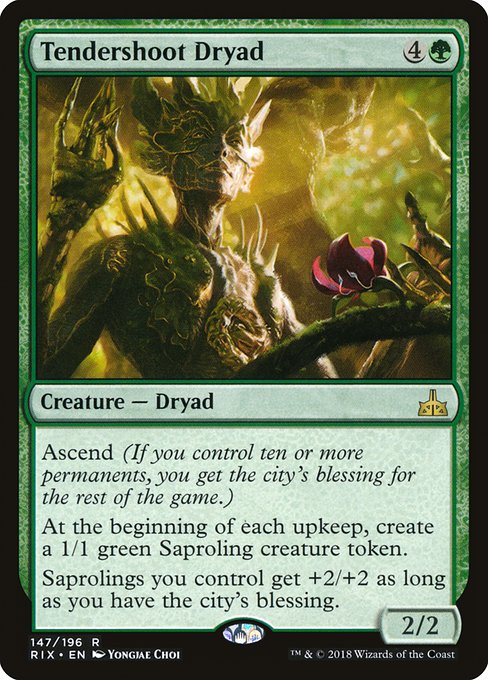


 0
0
 4.18€
4.18€
